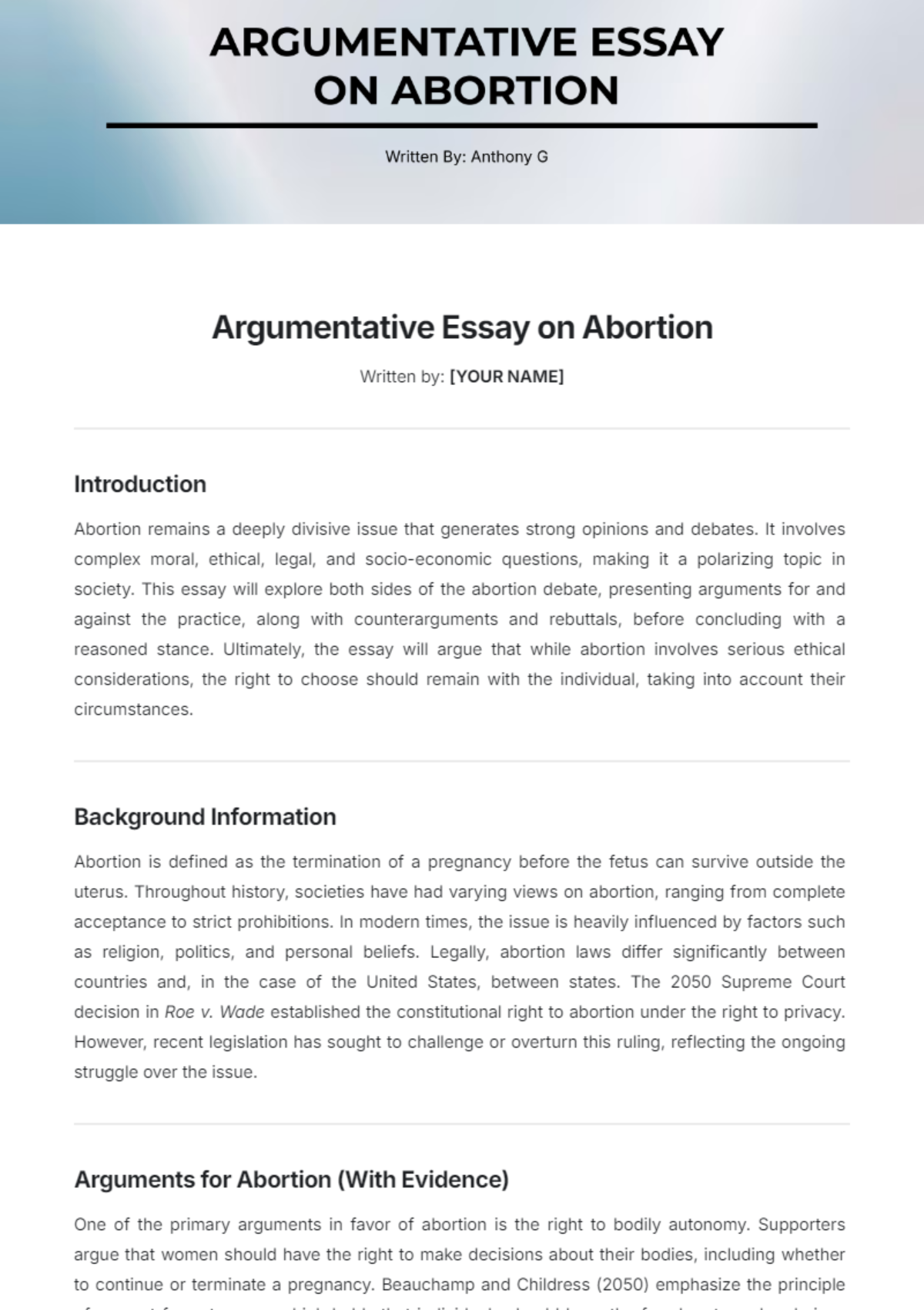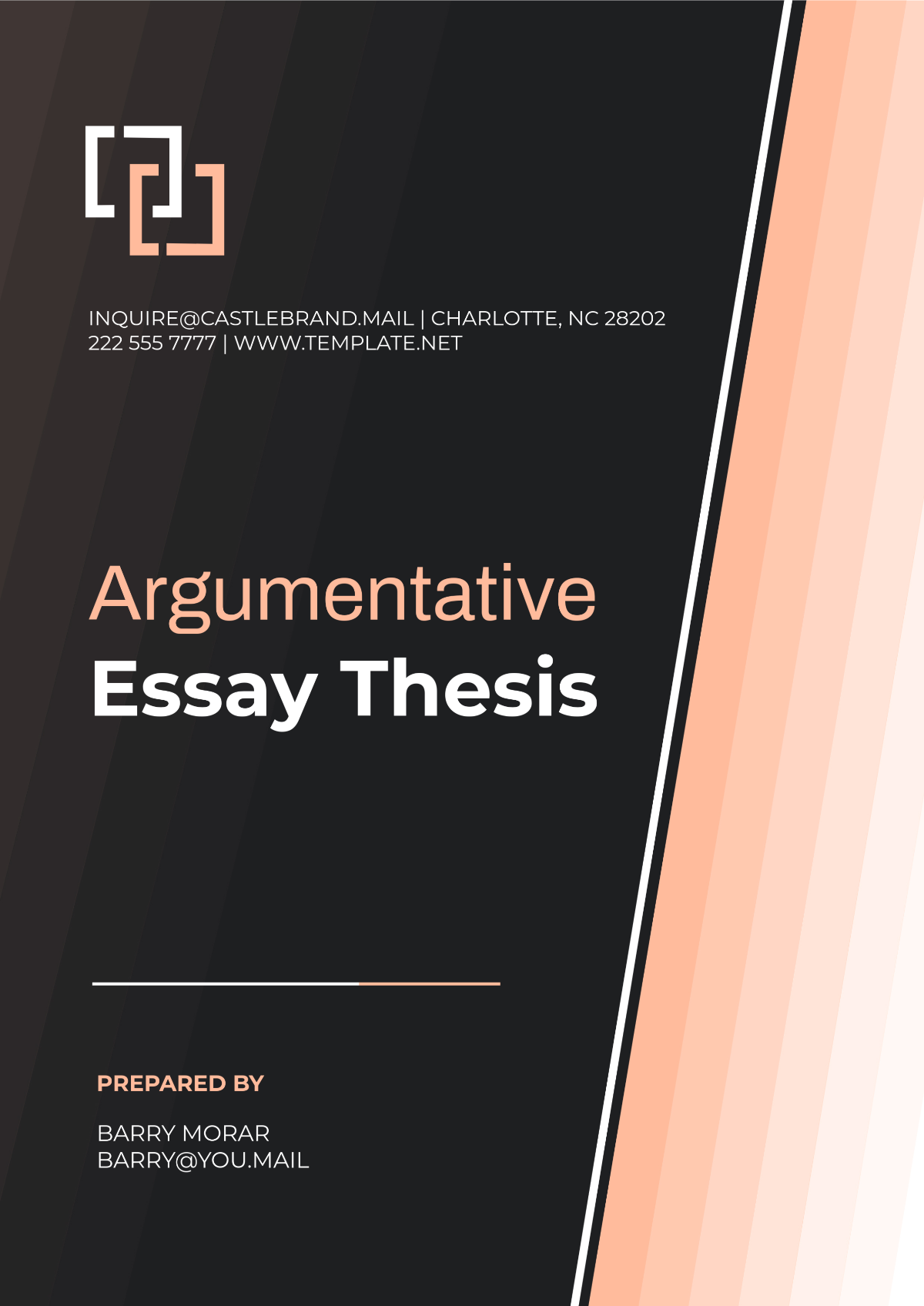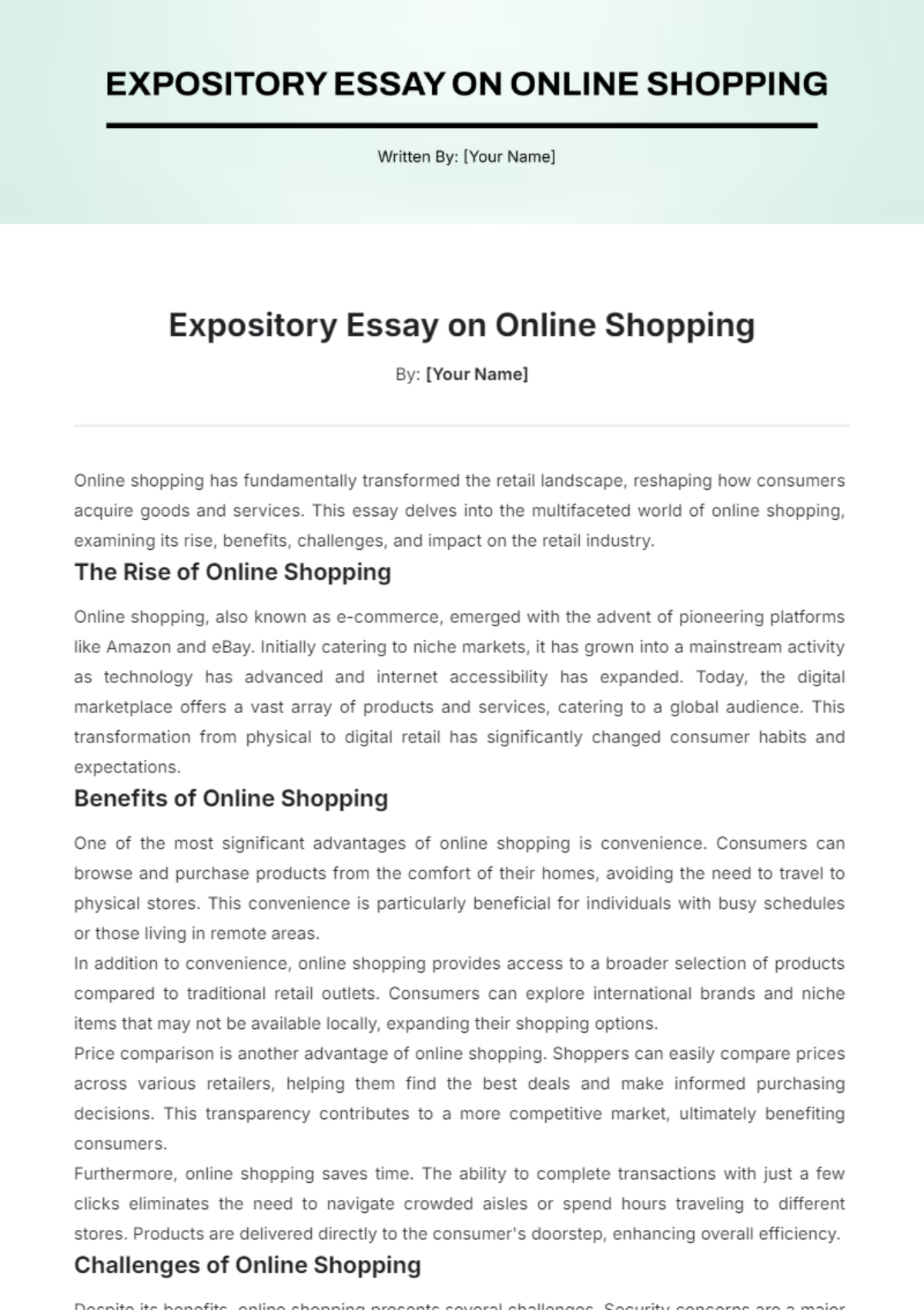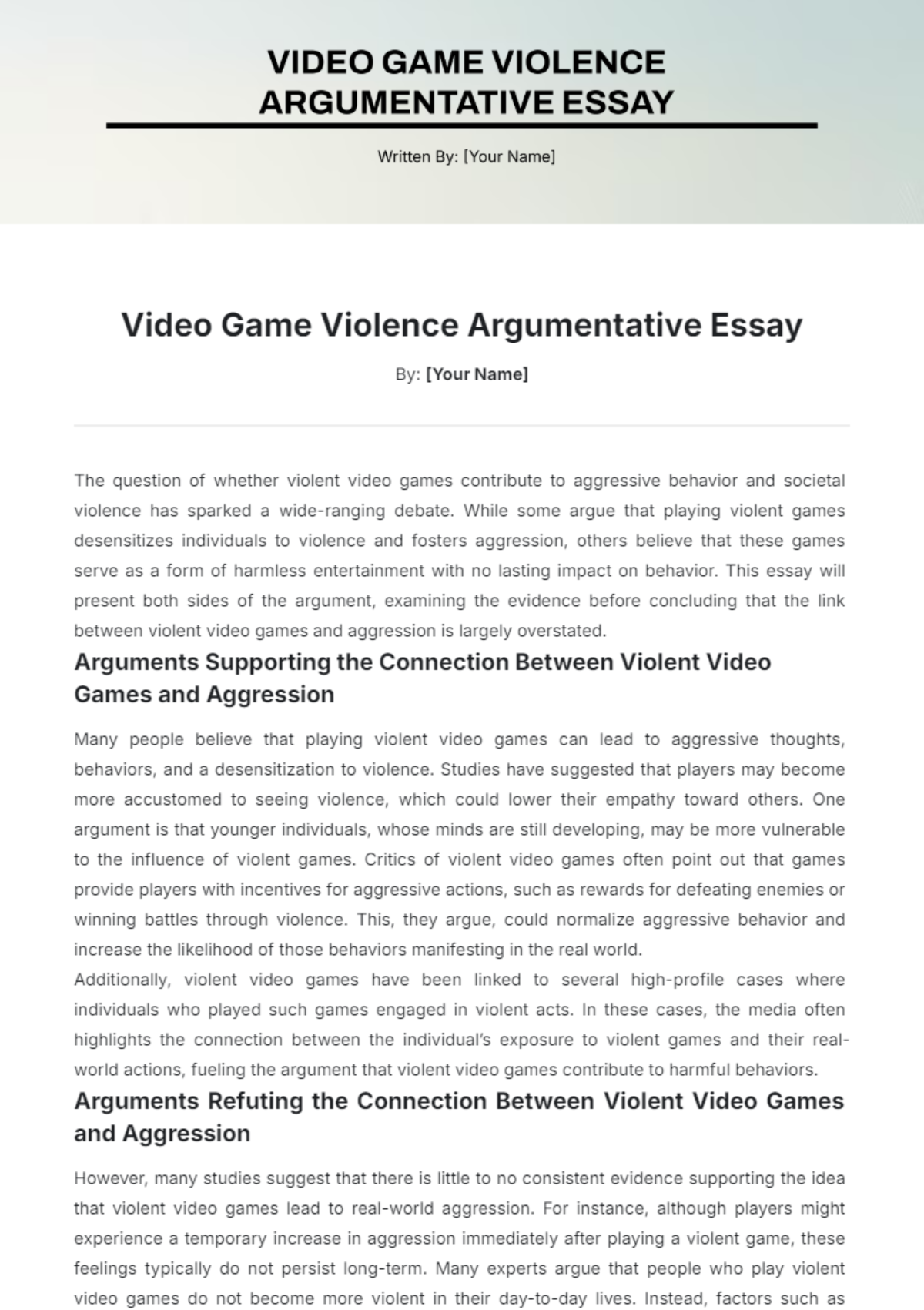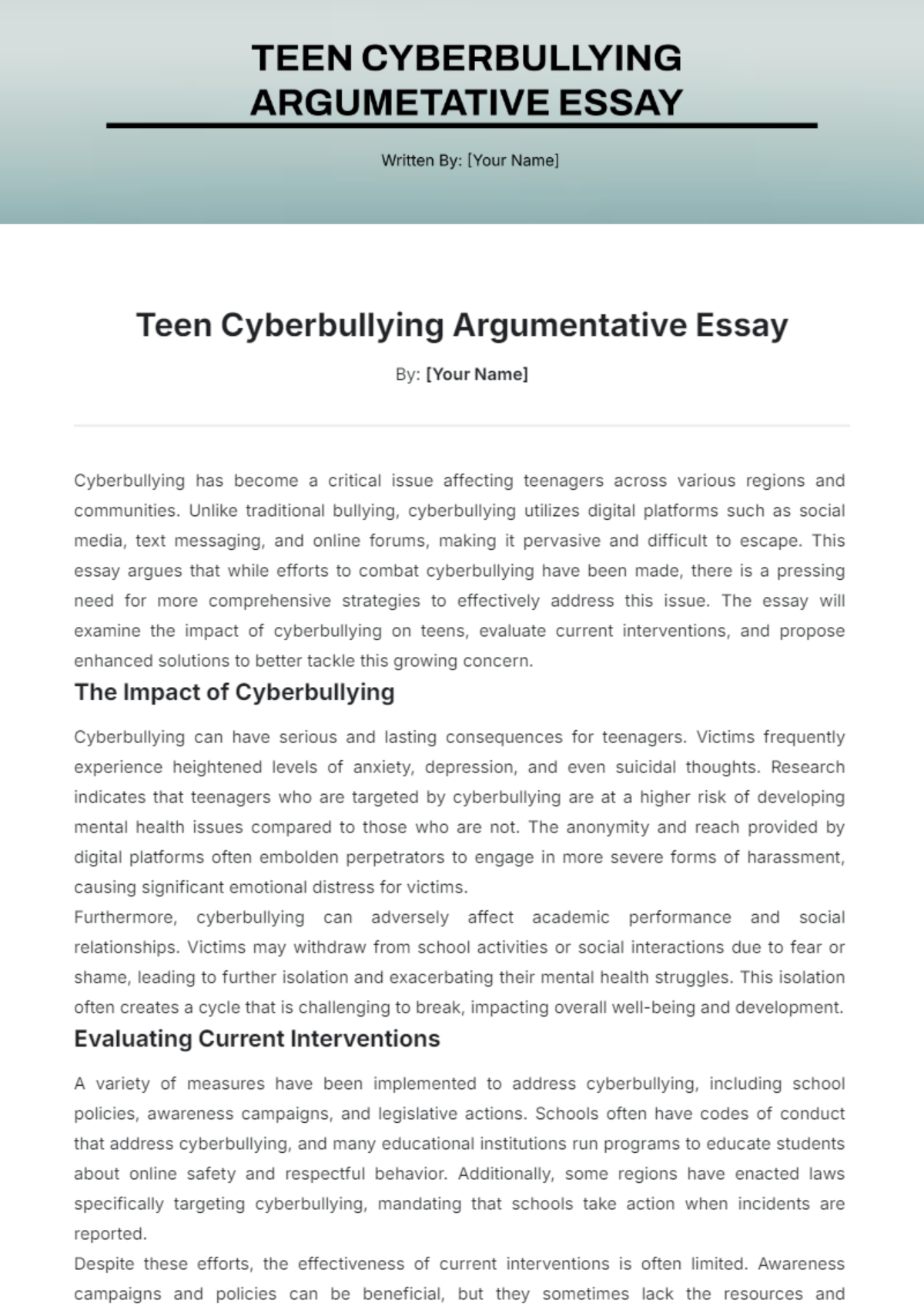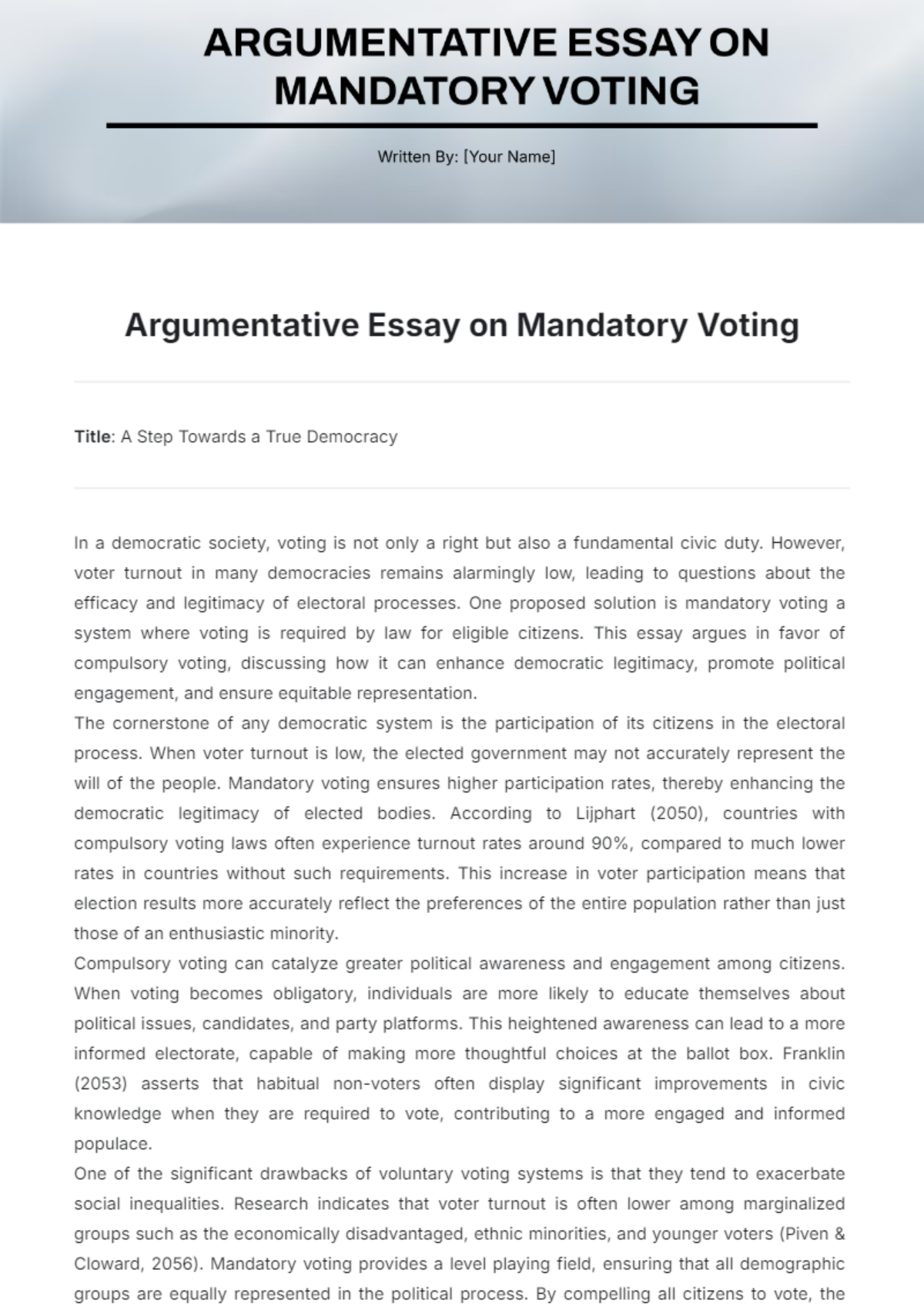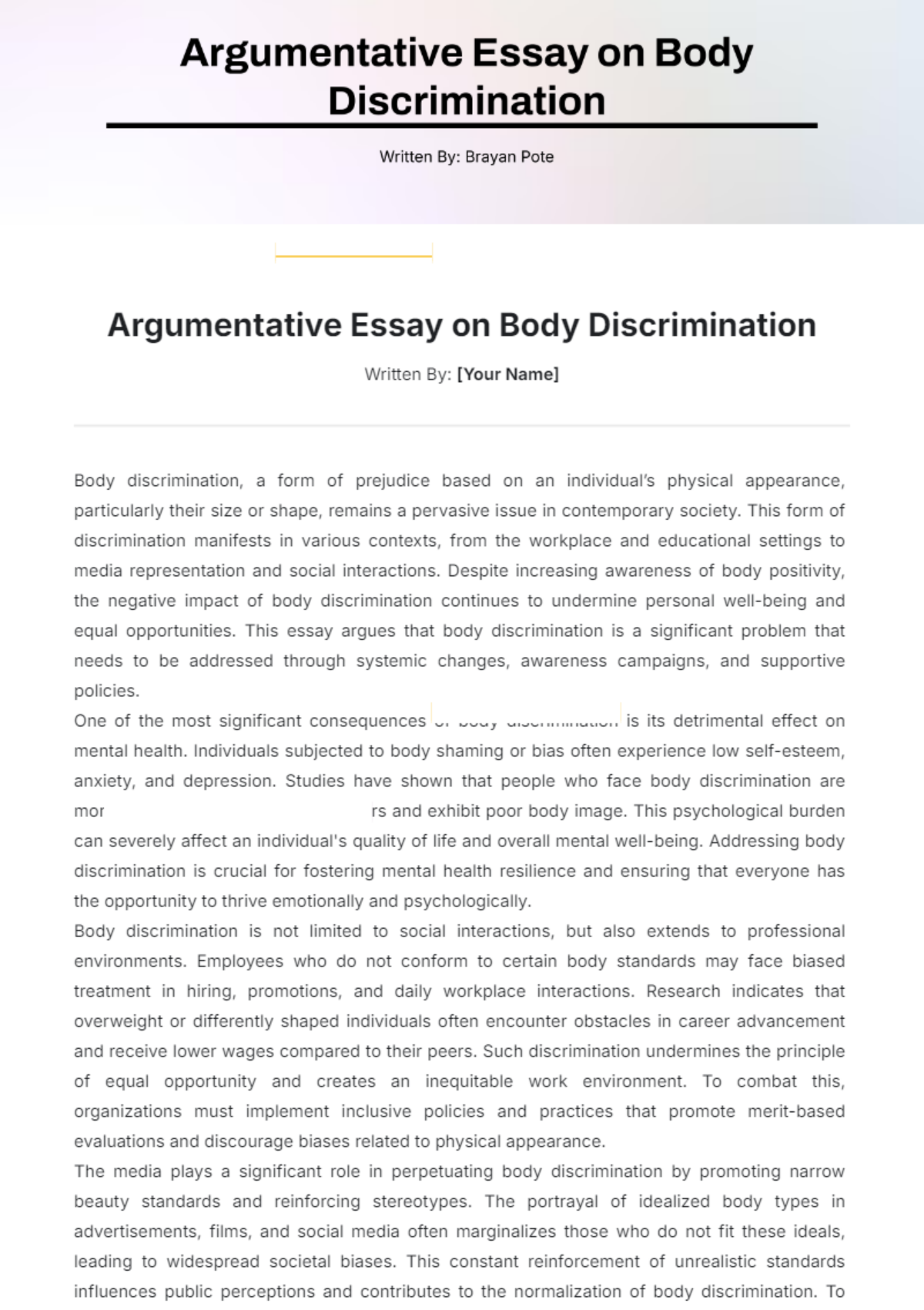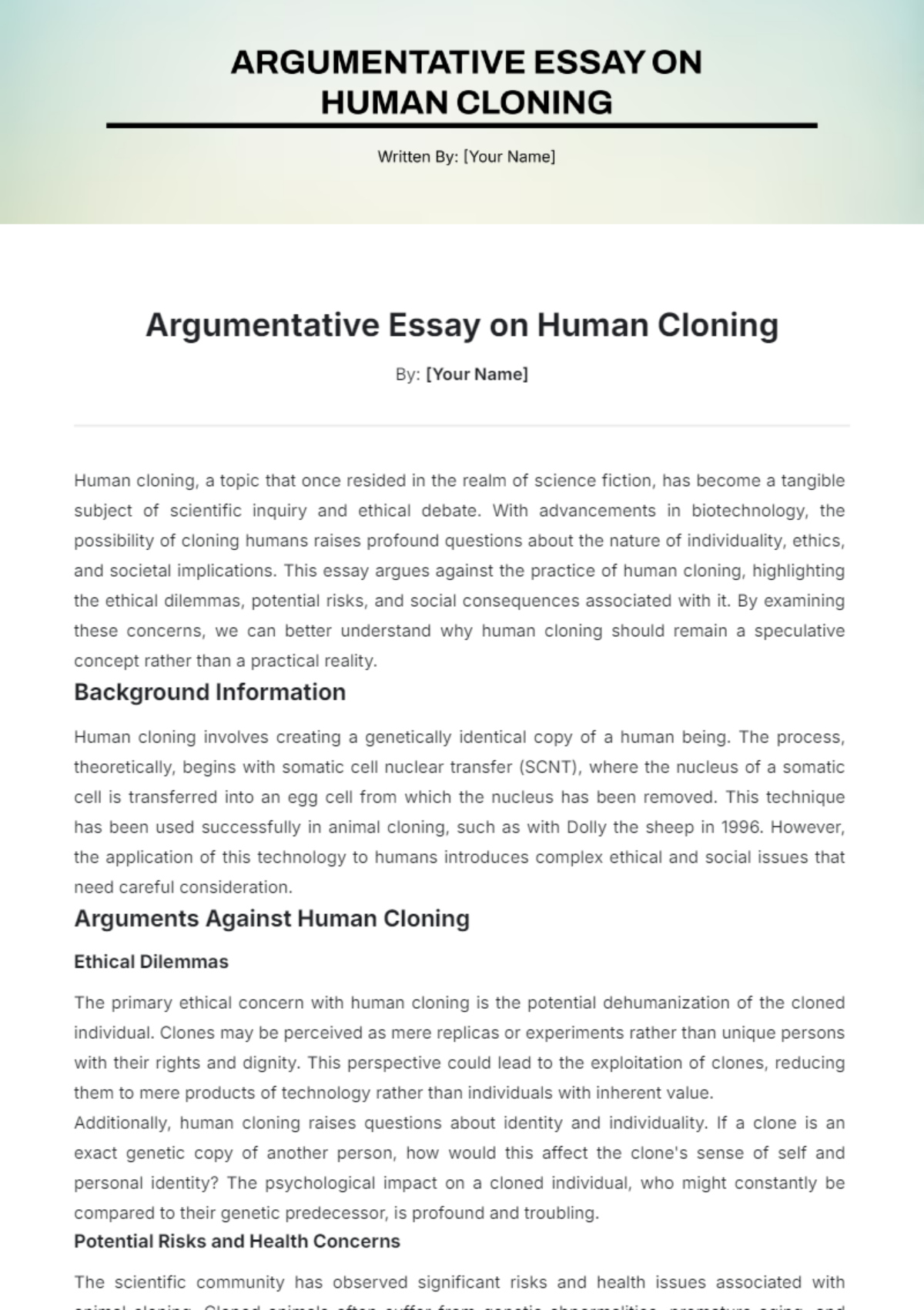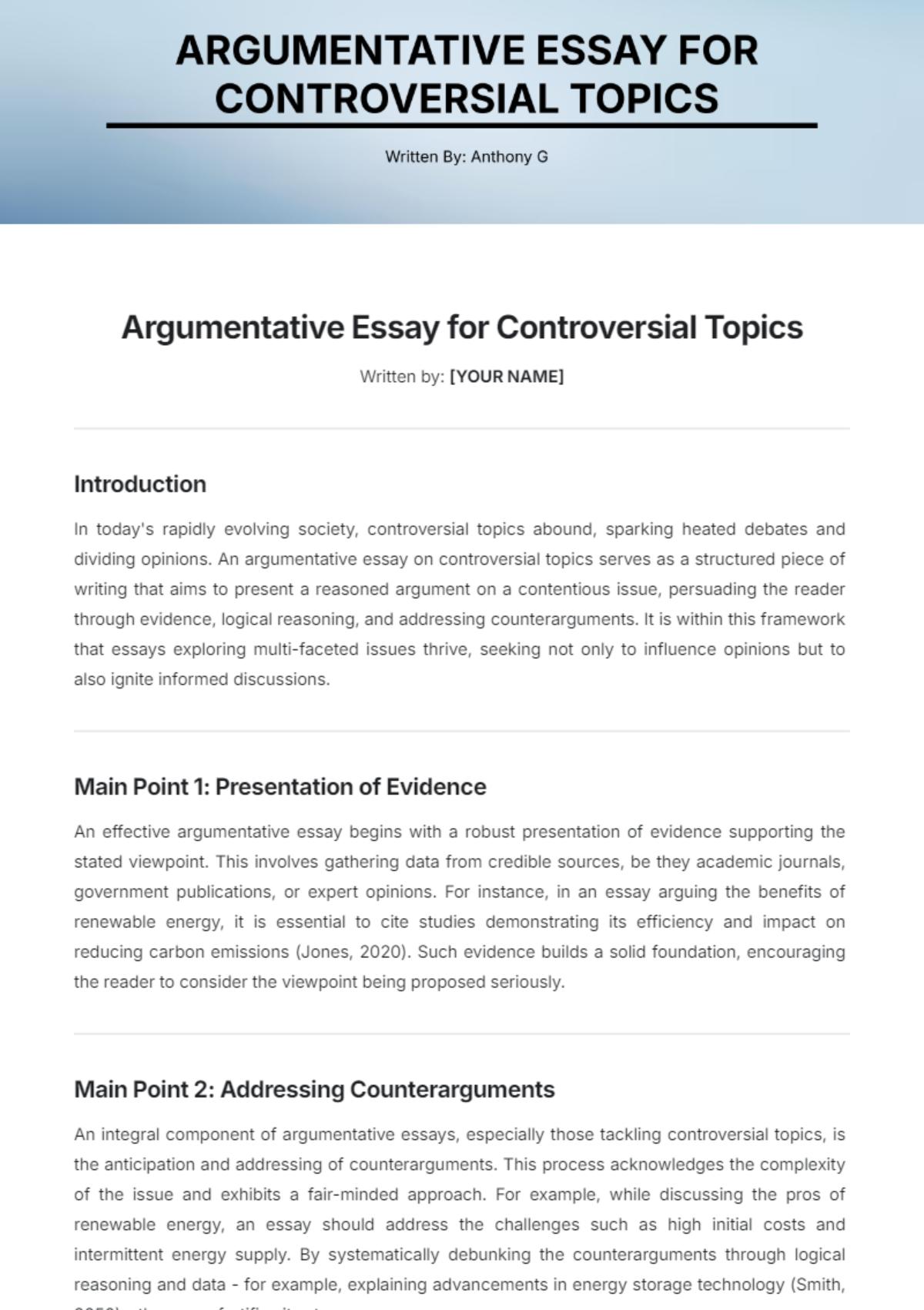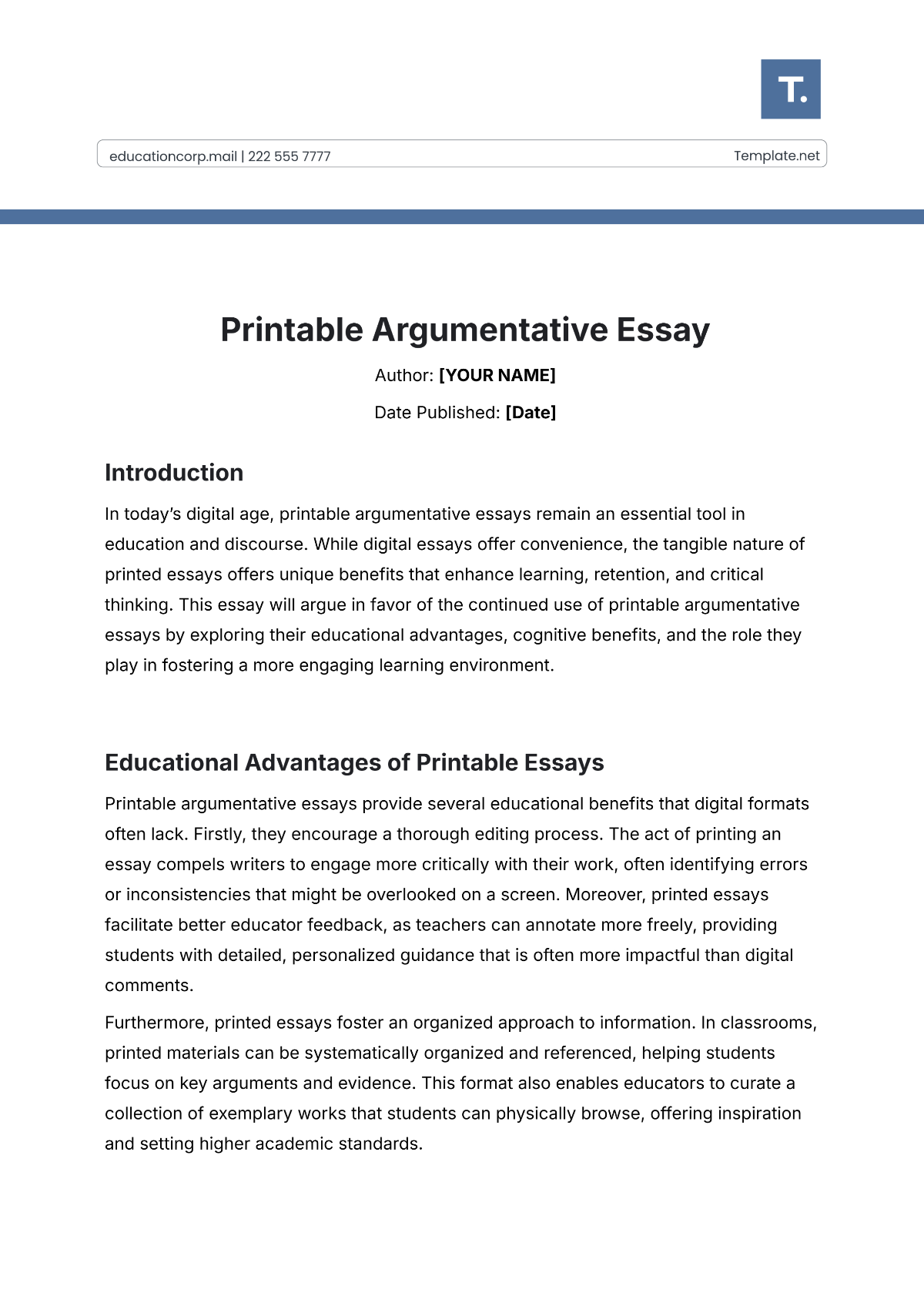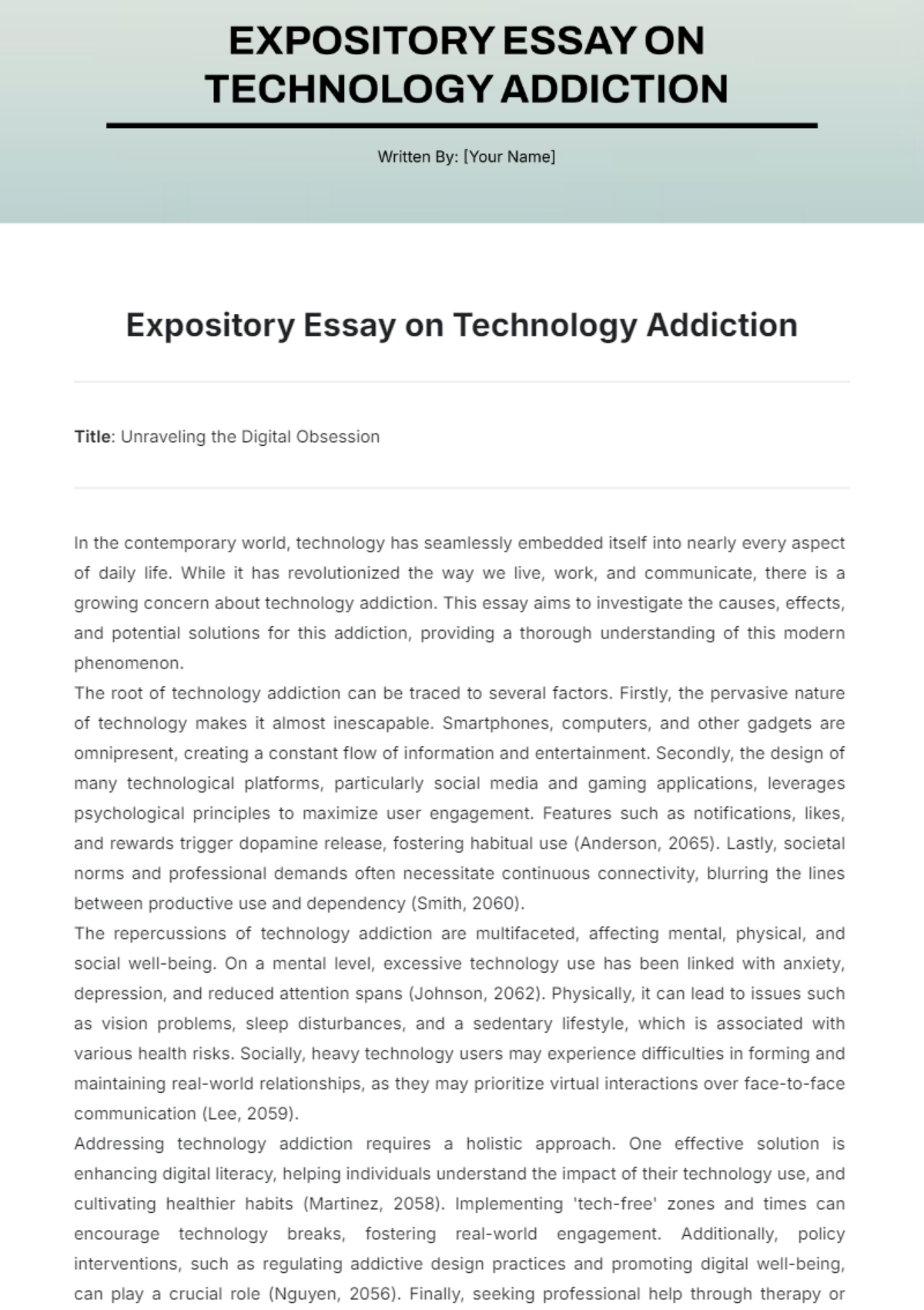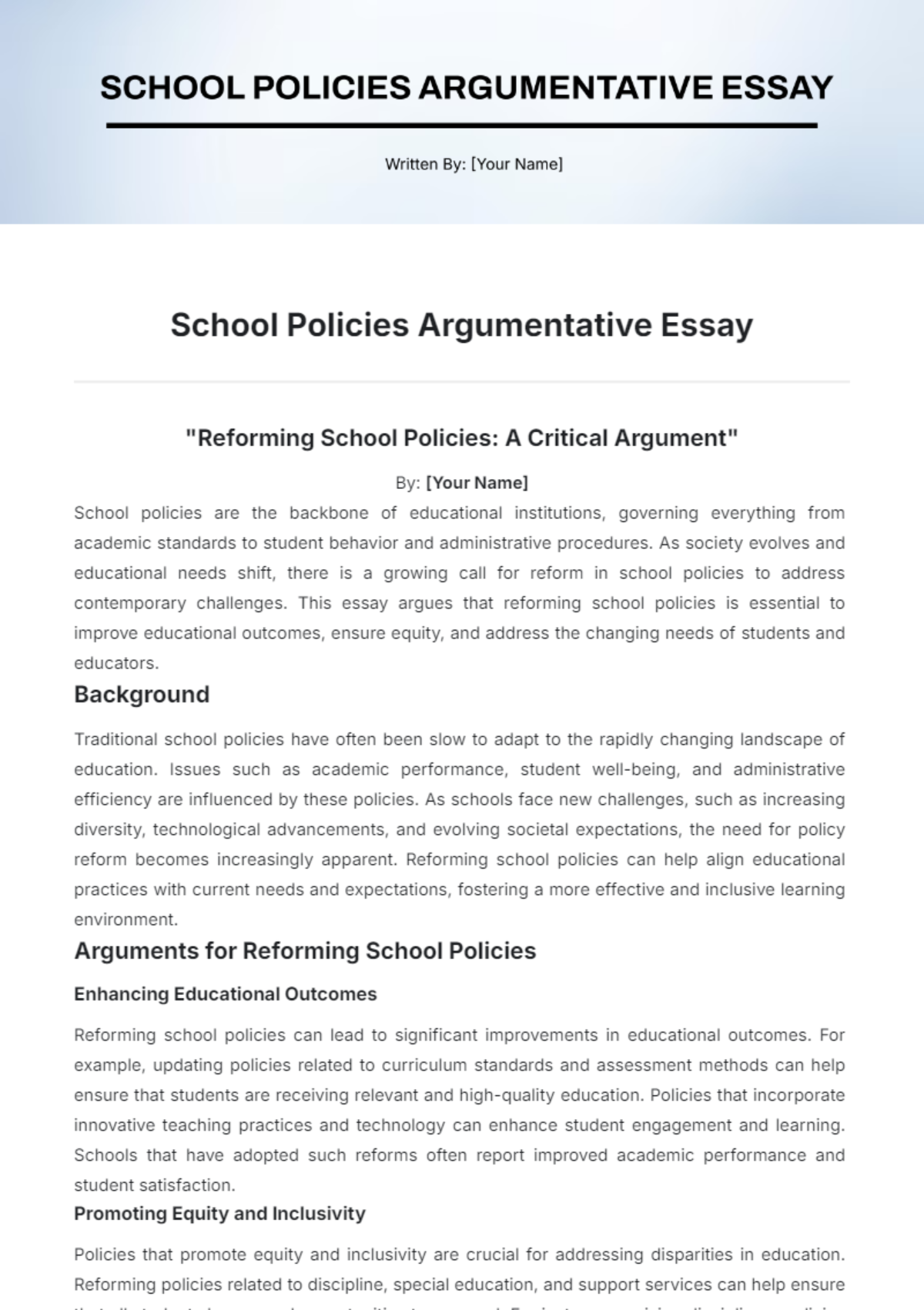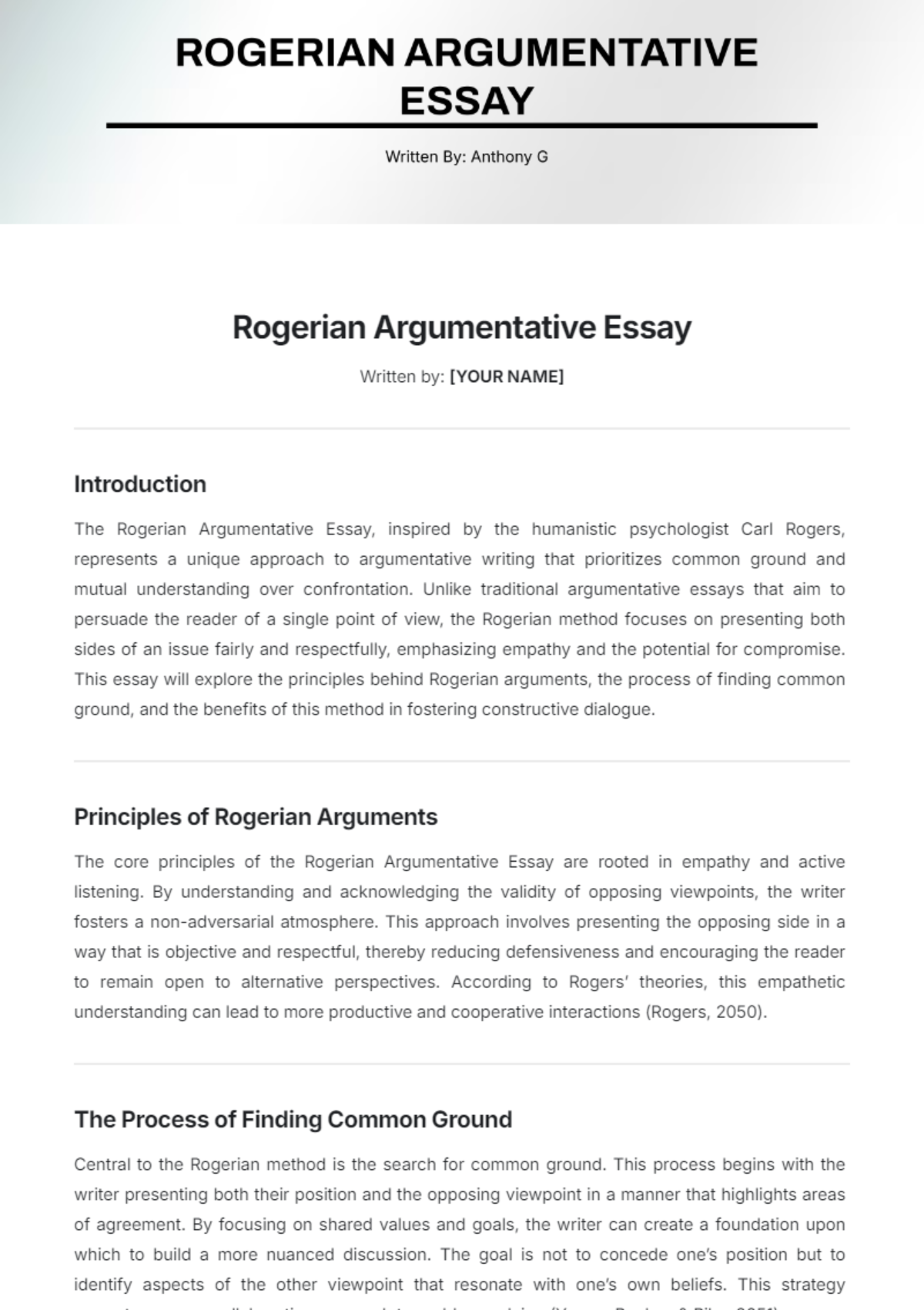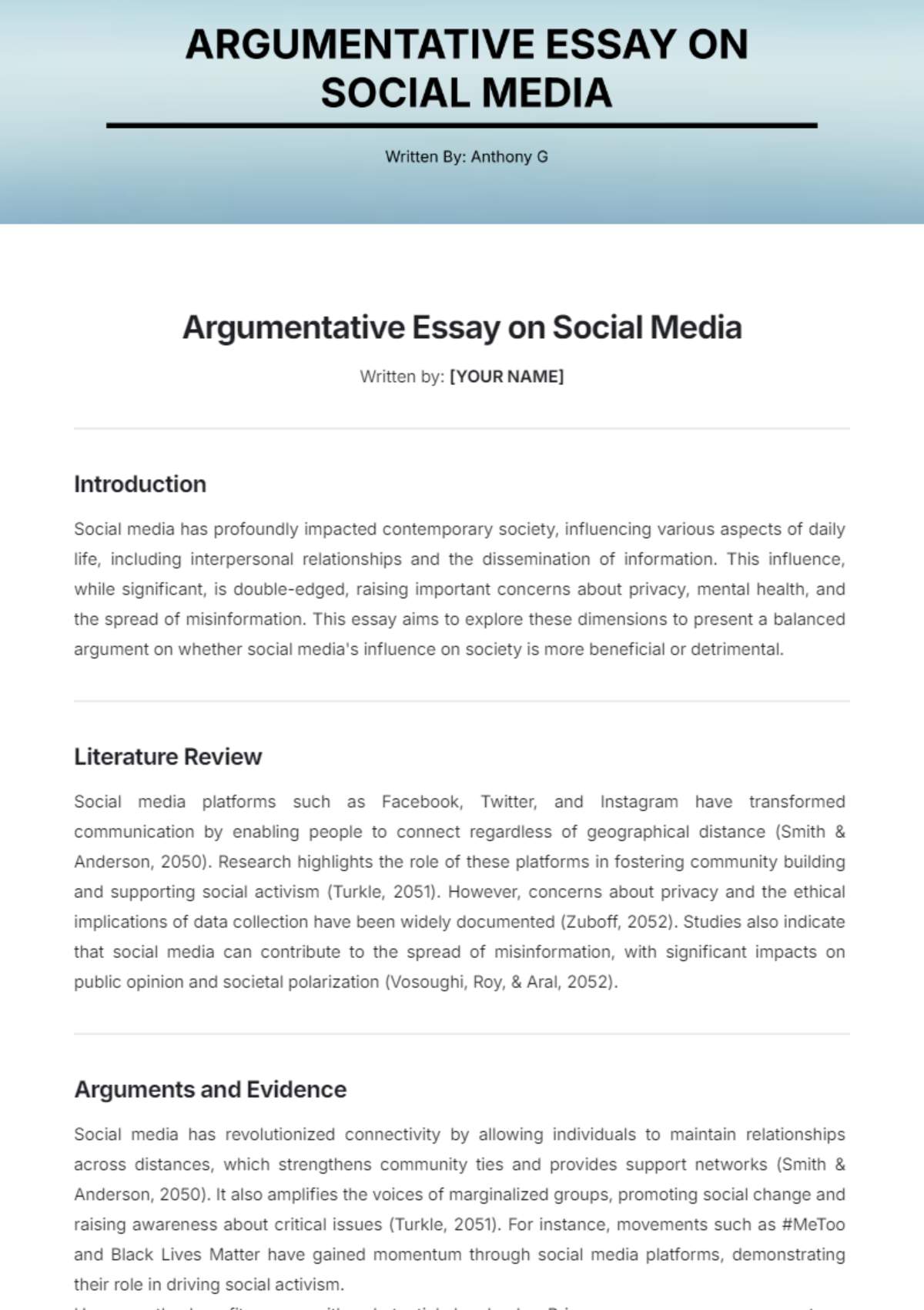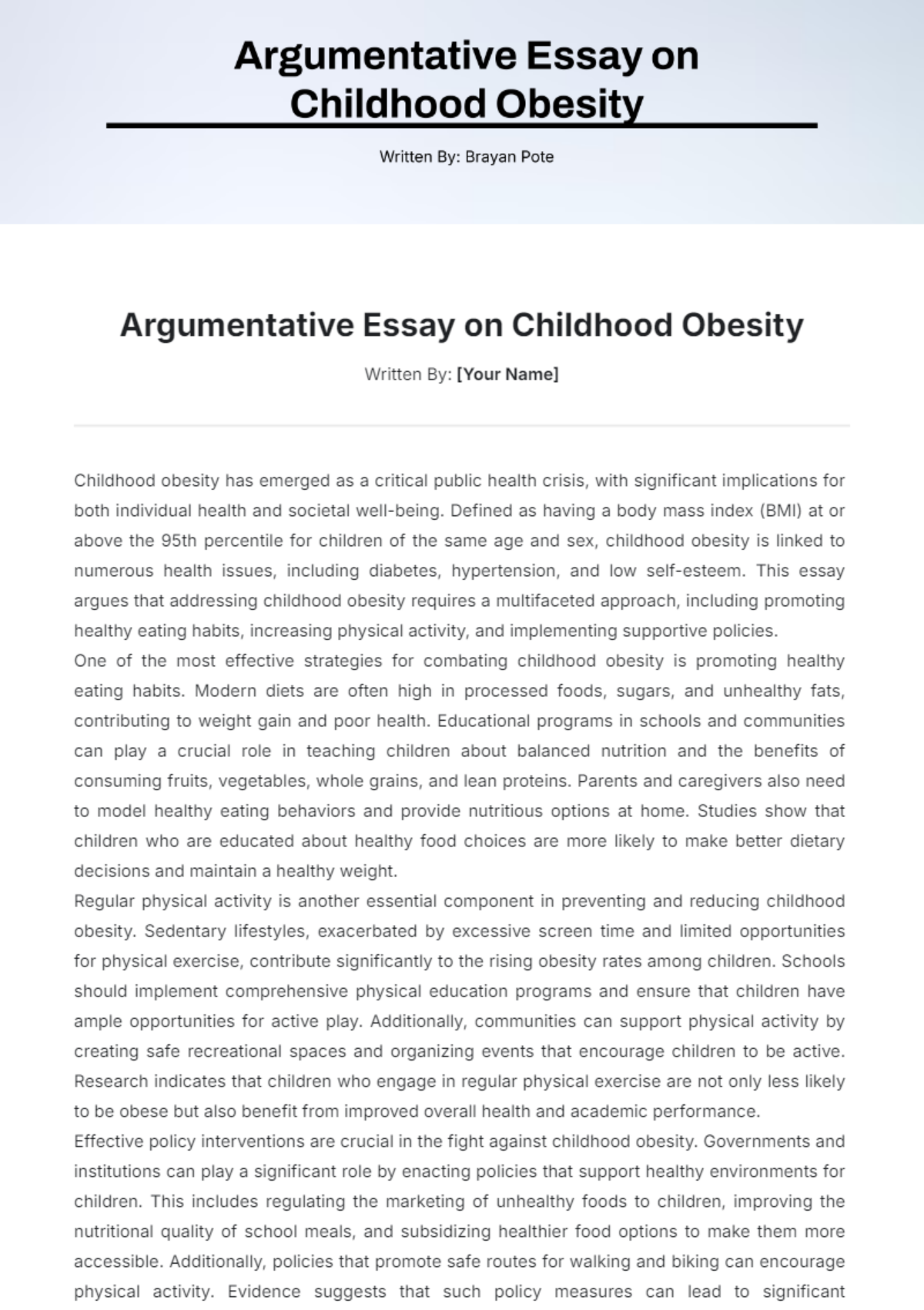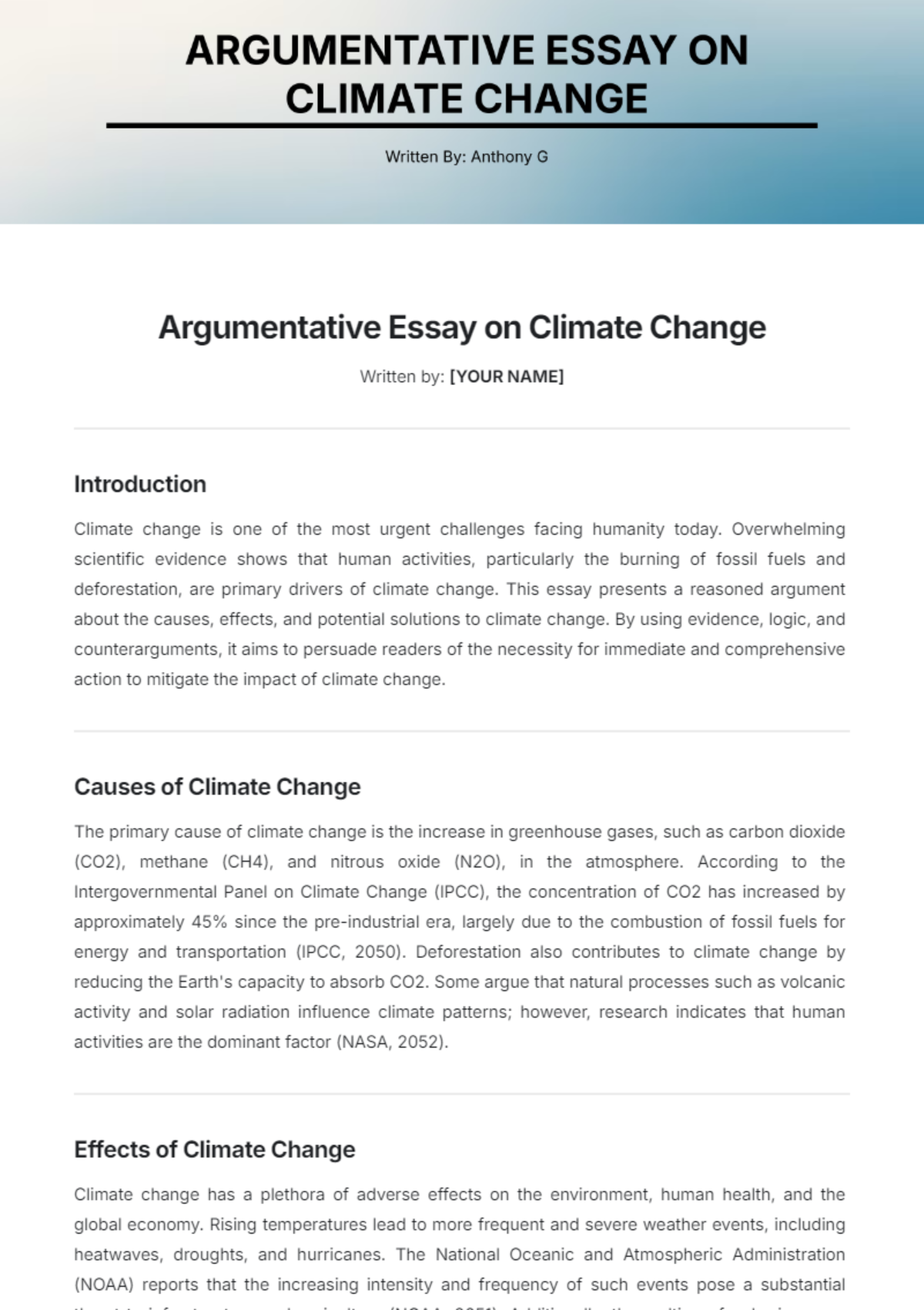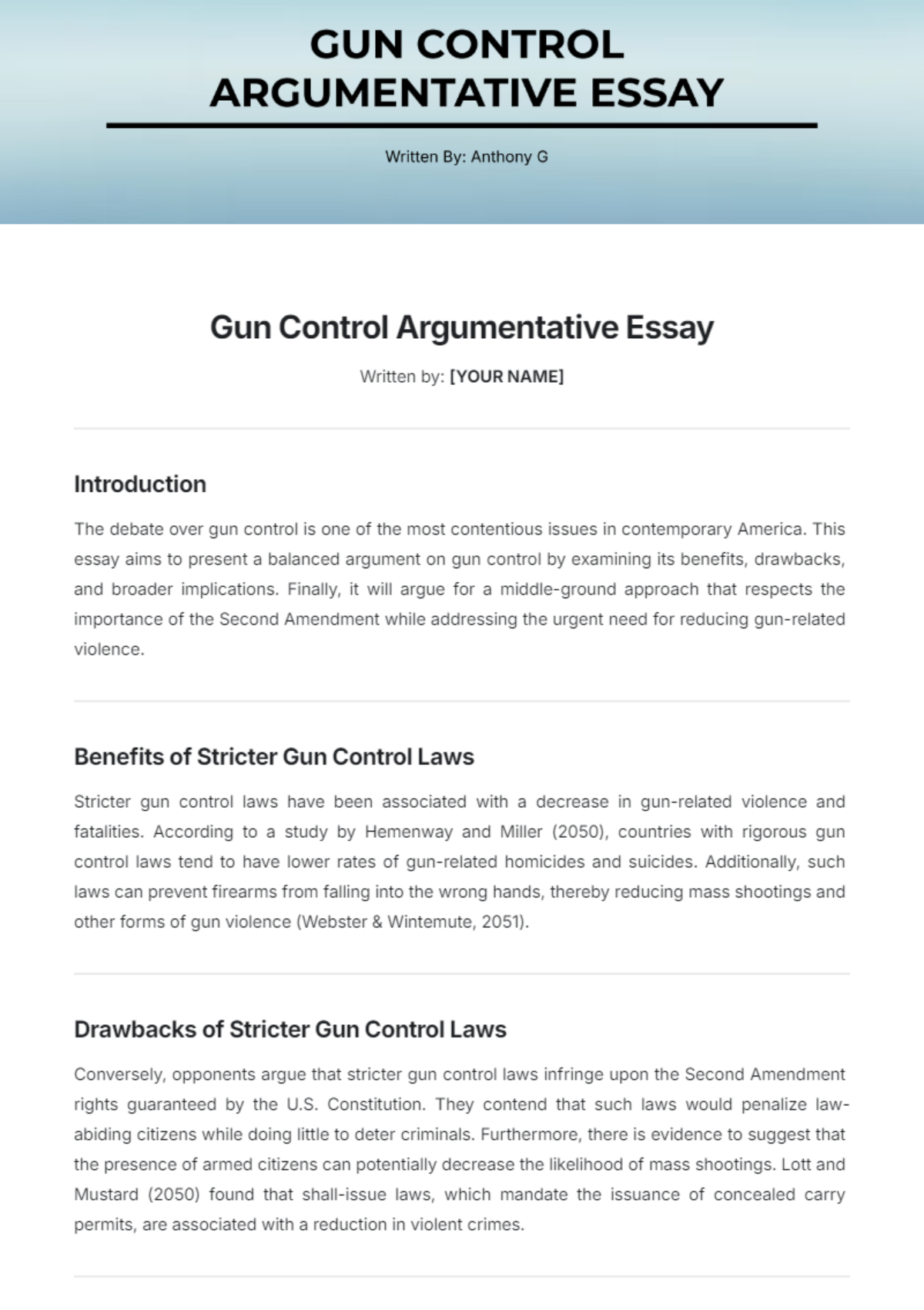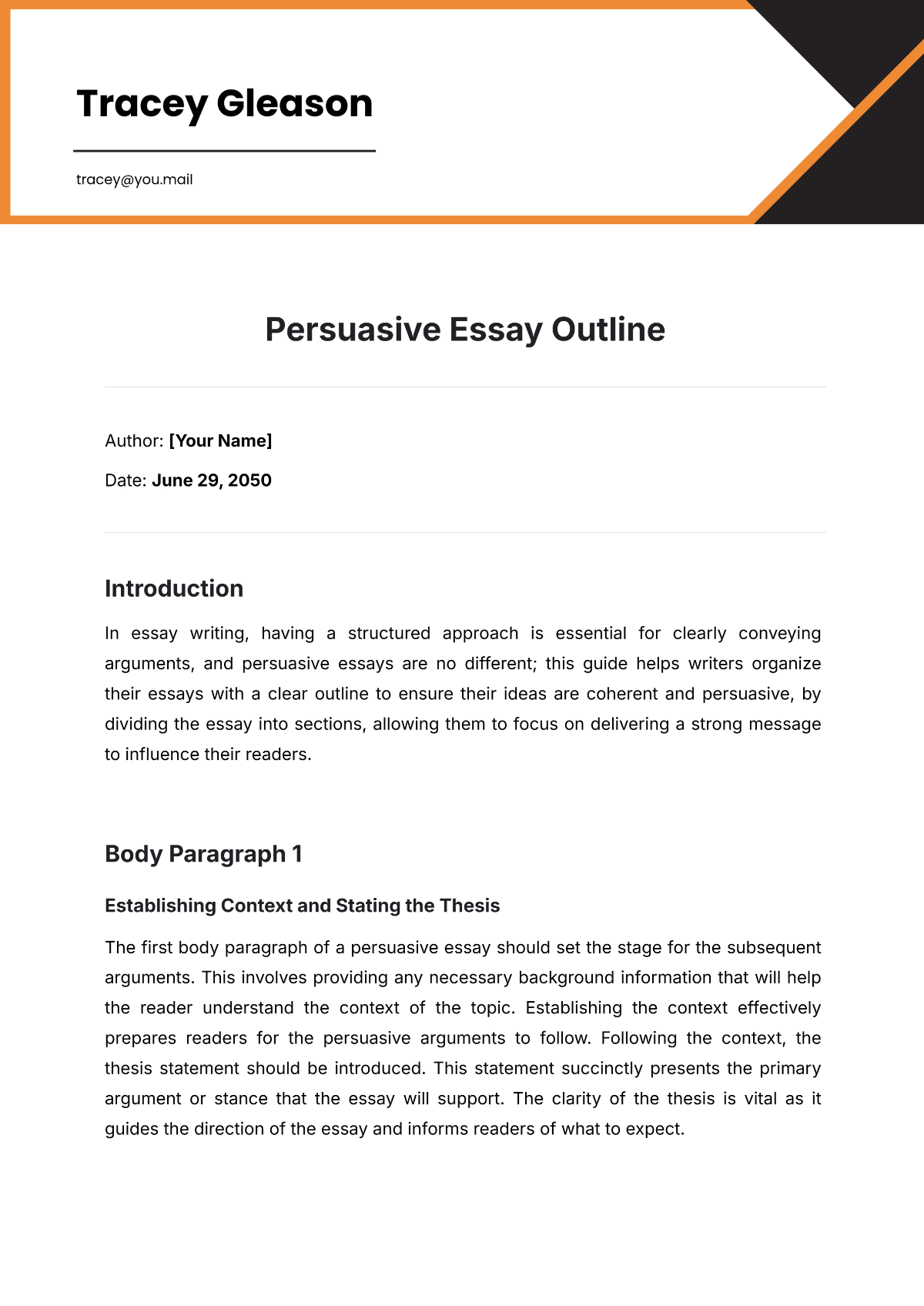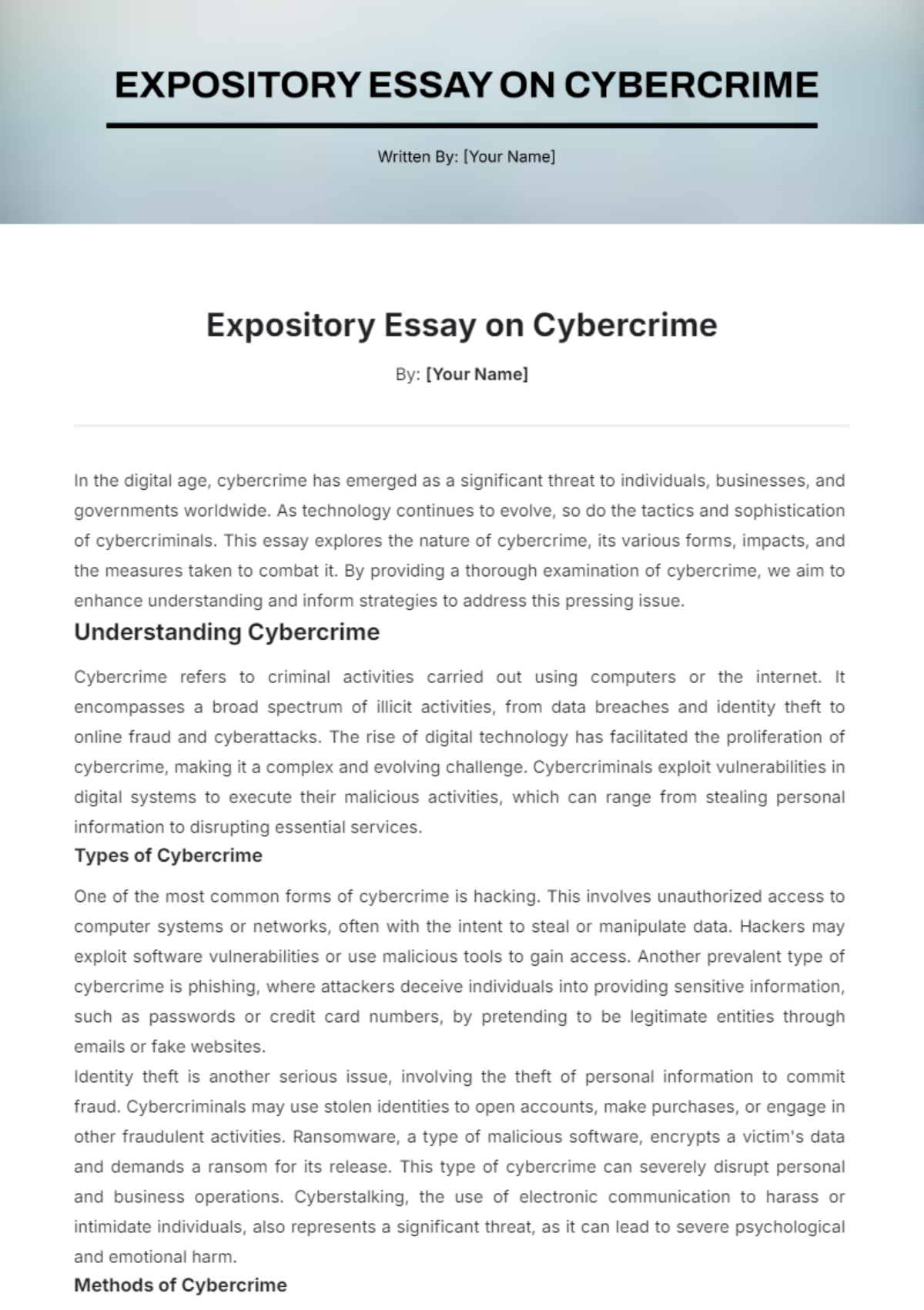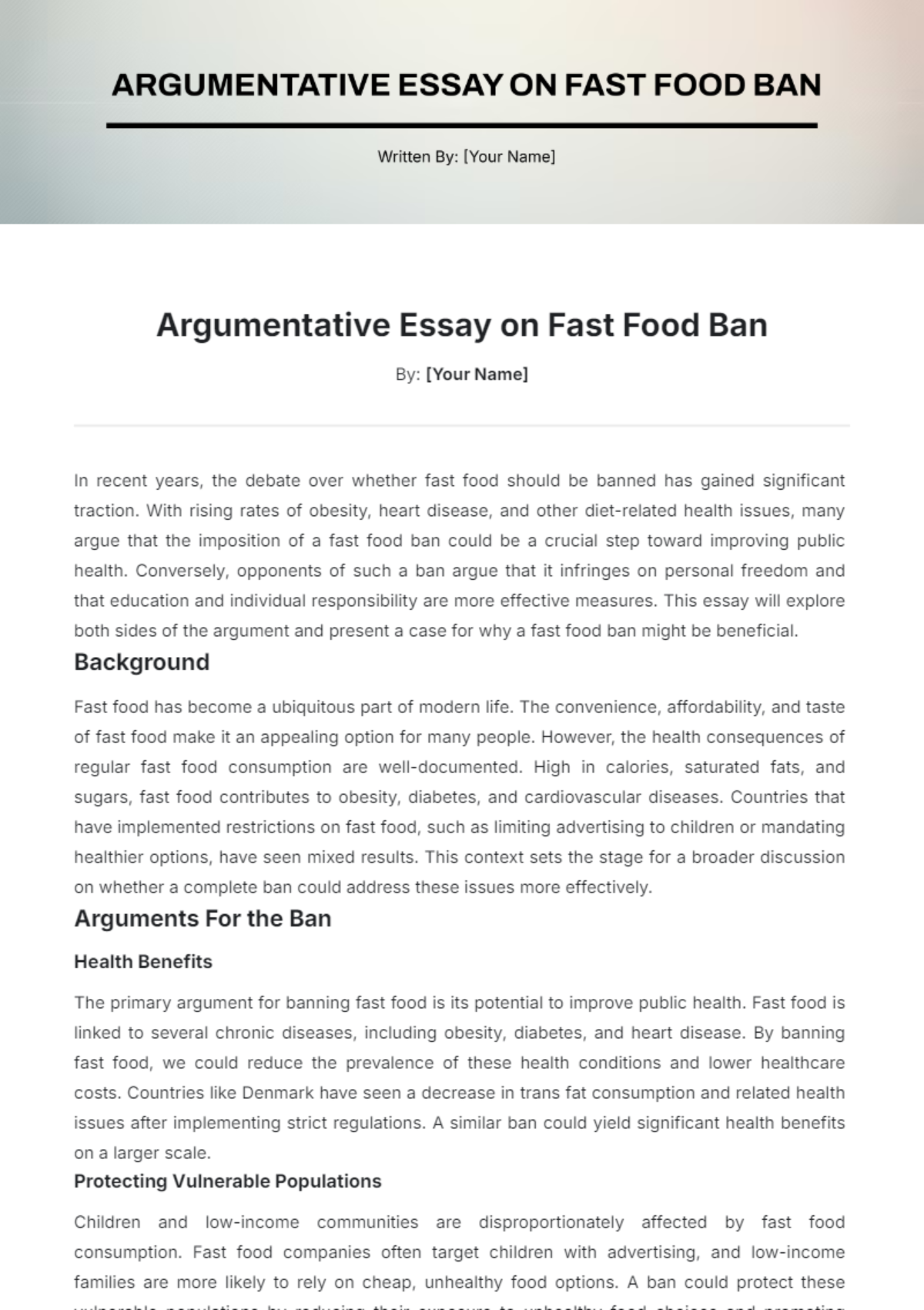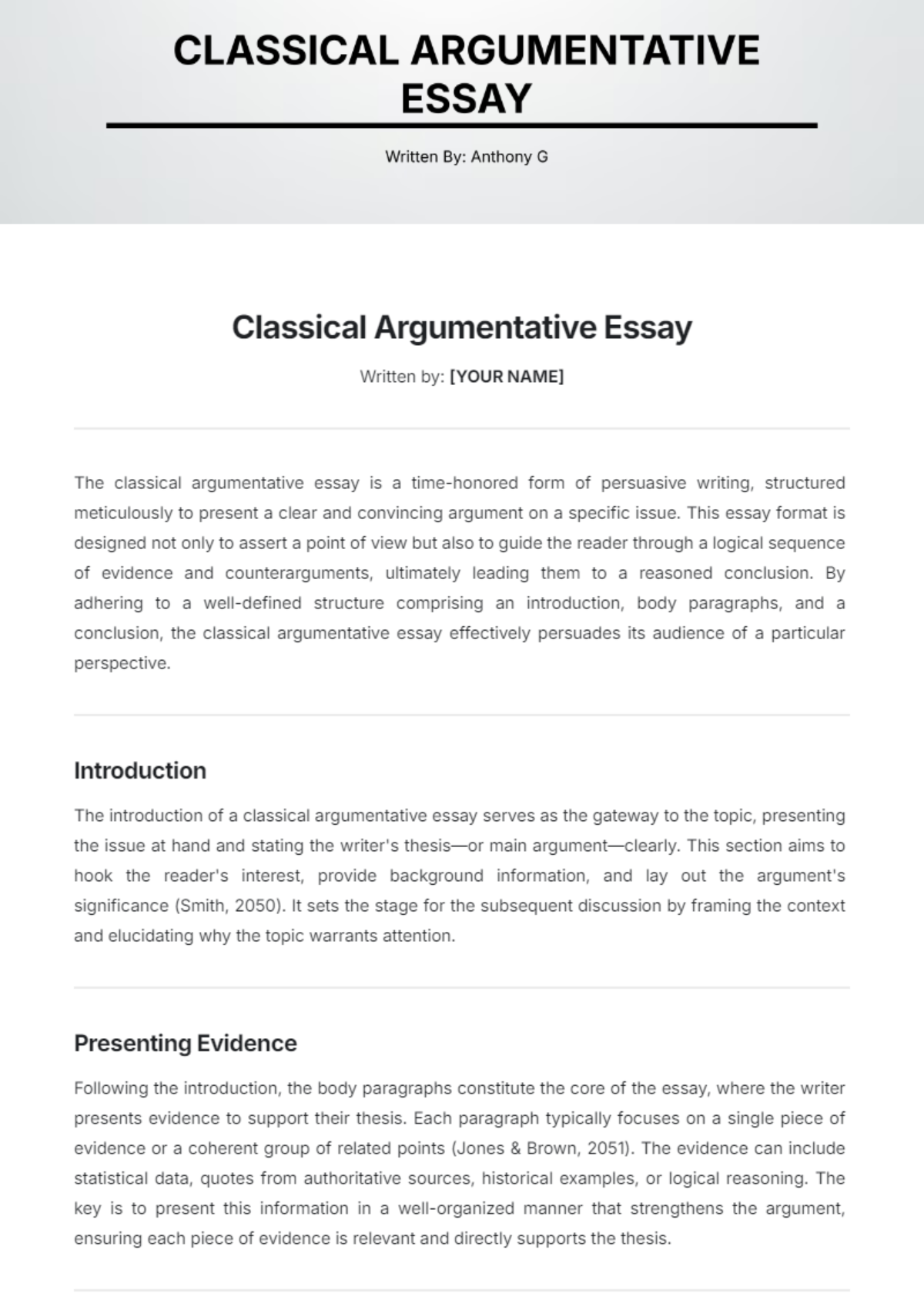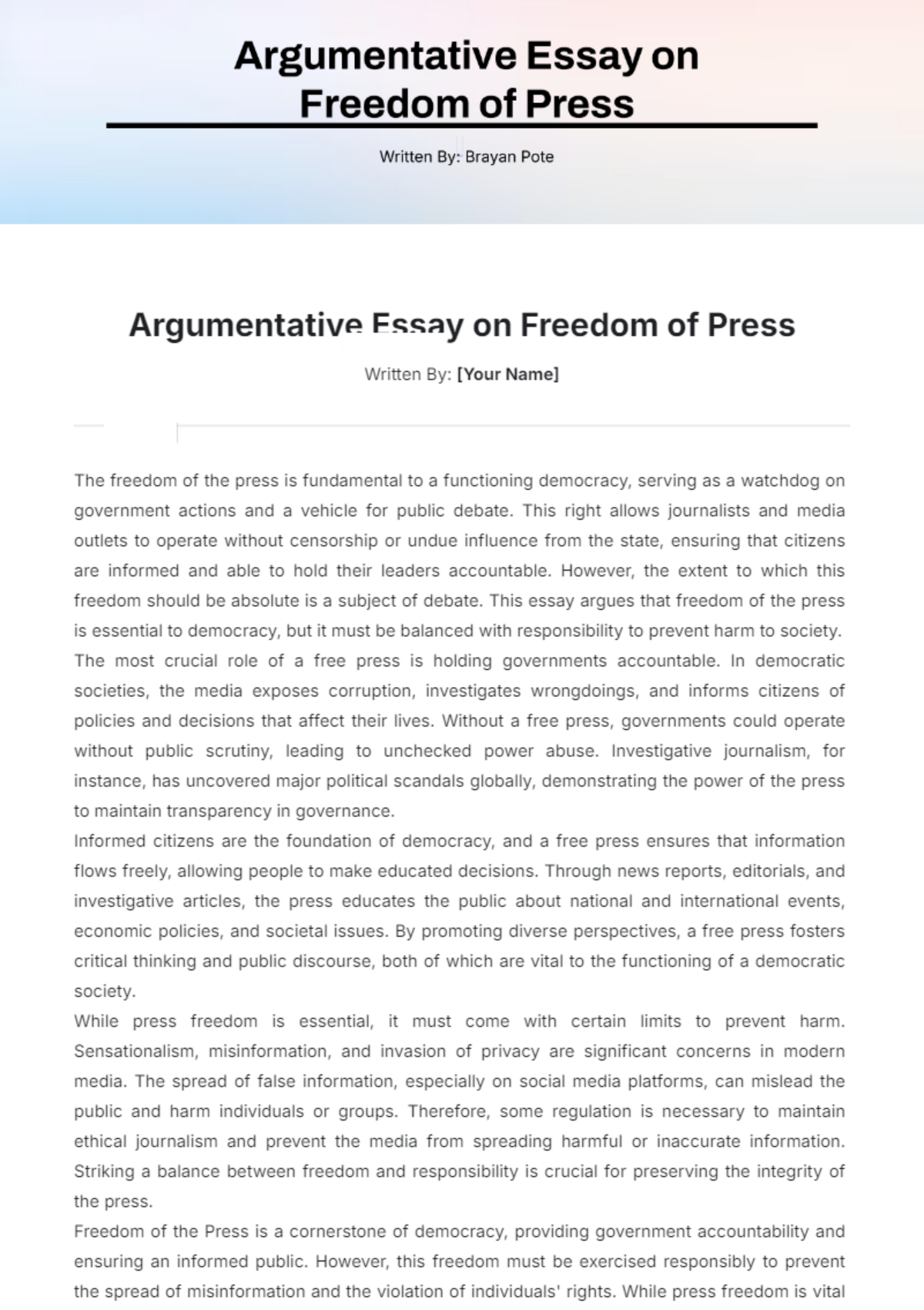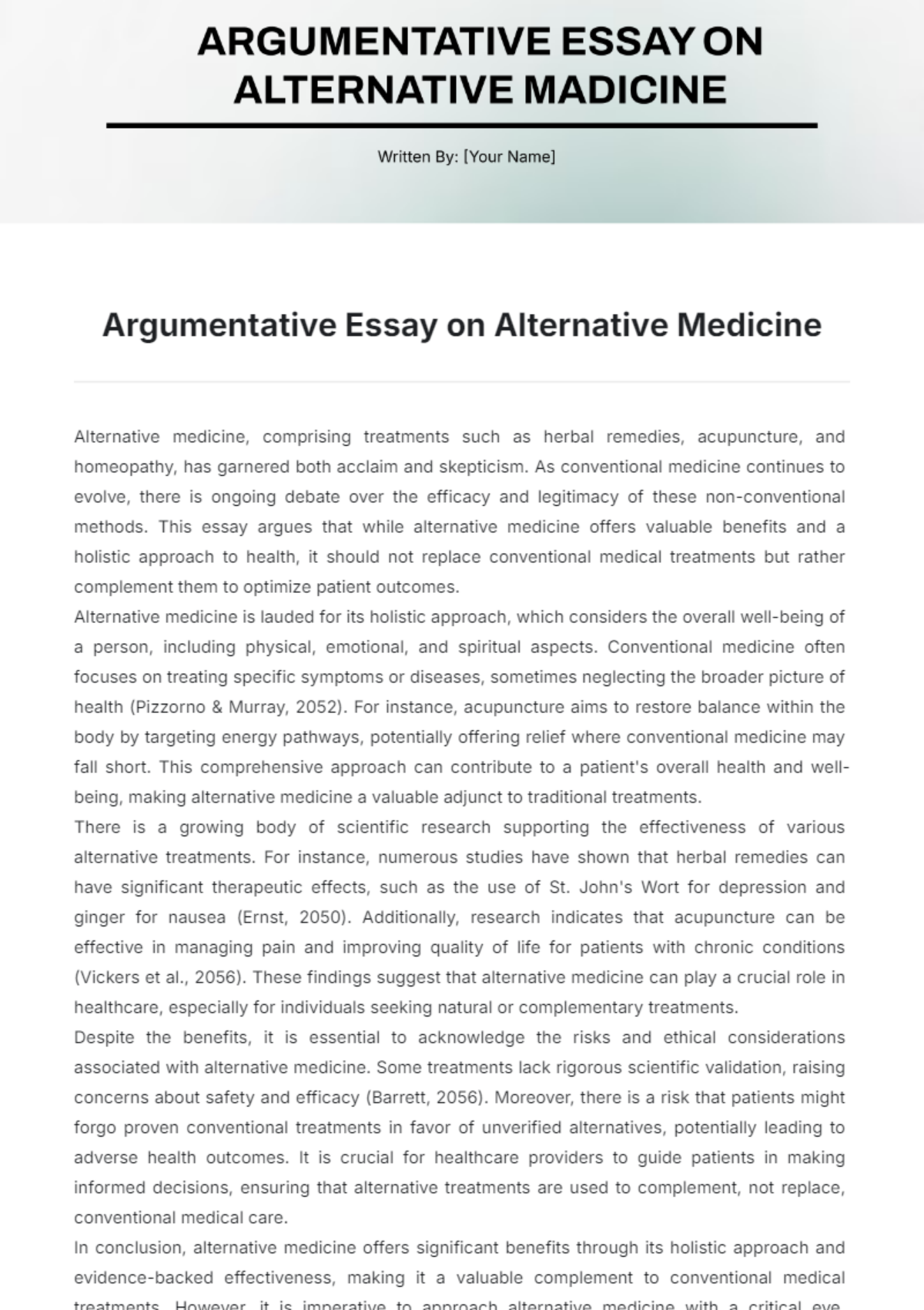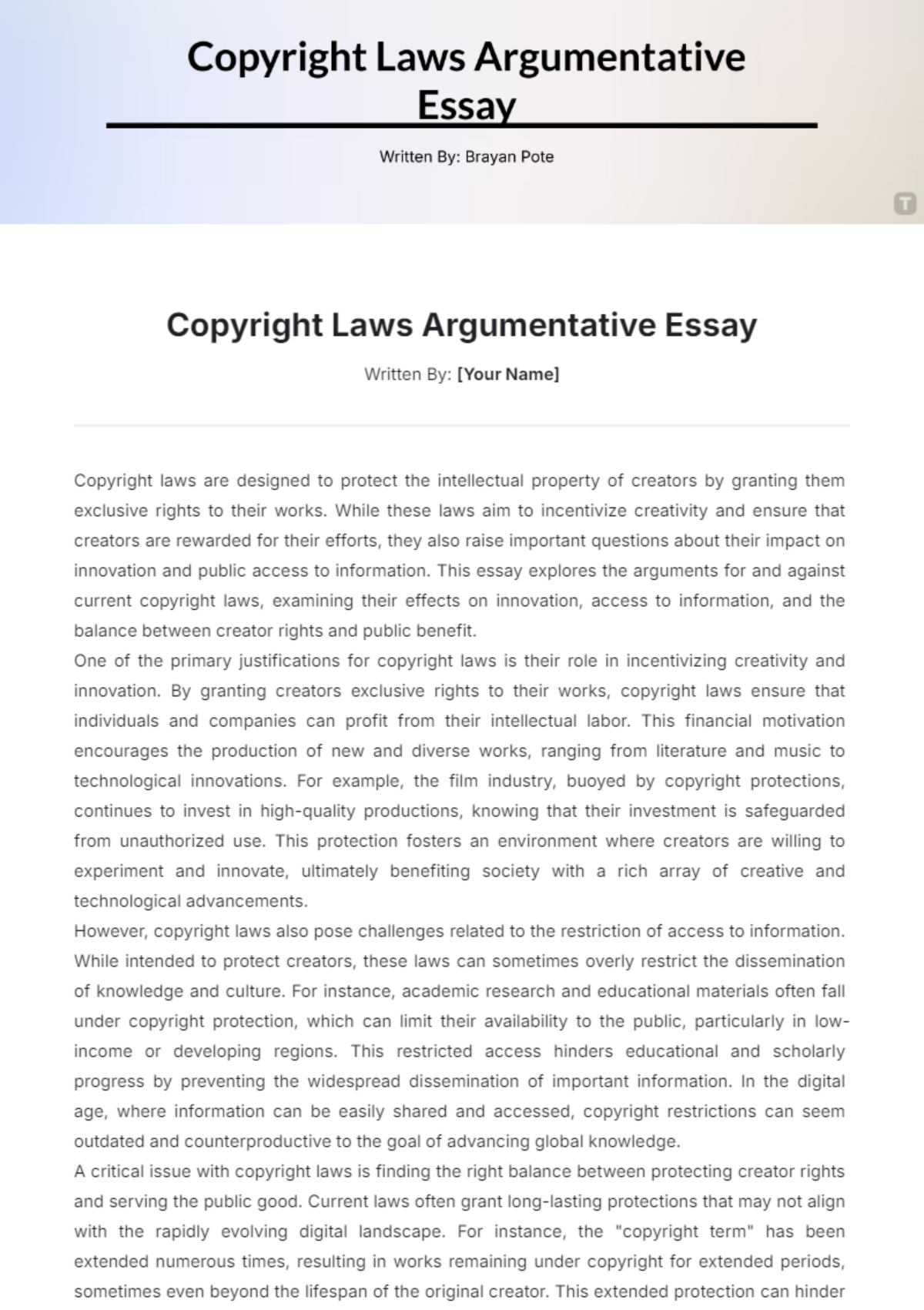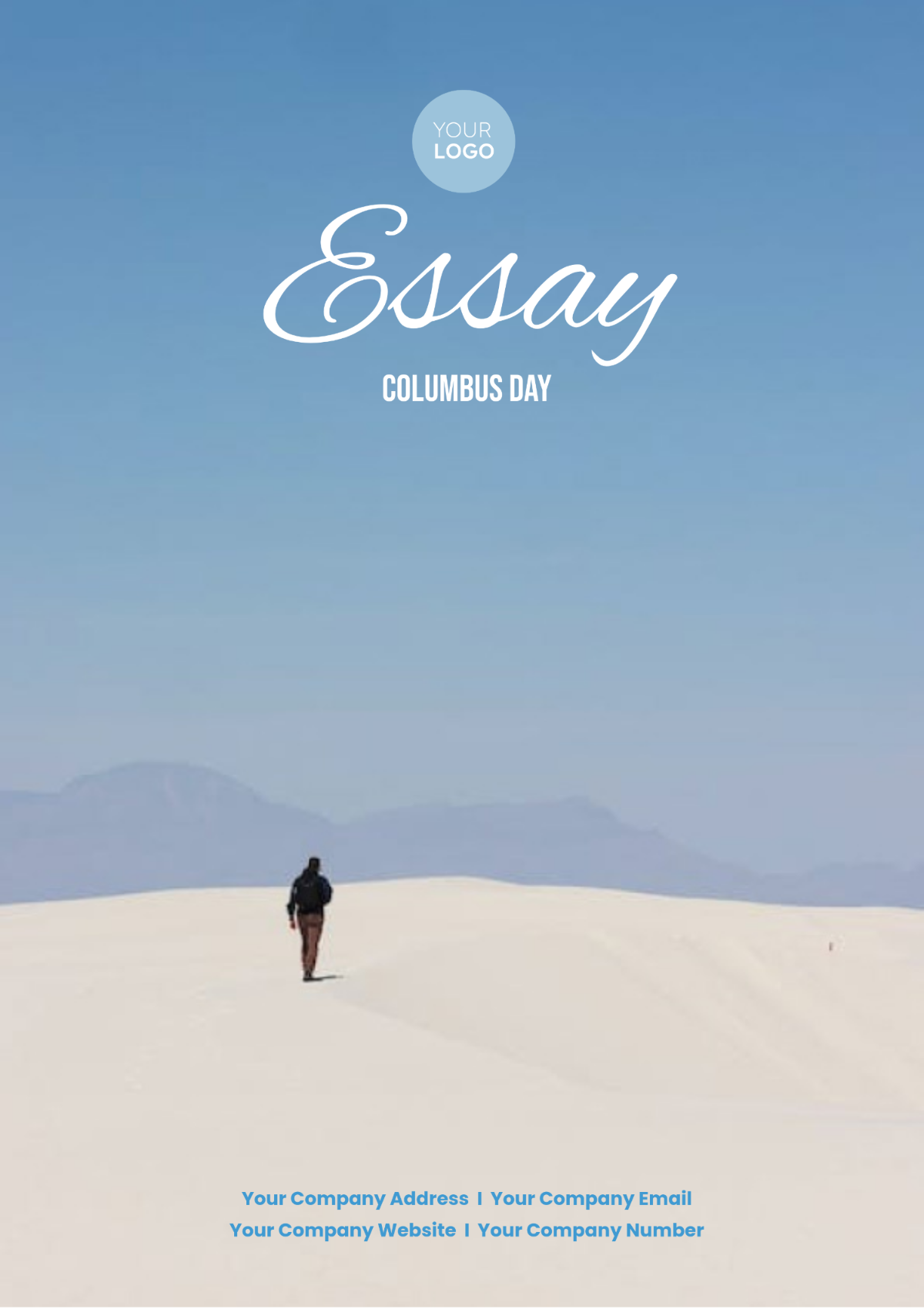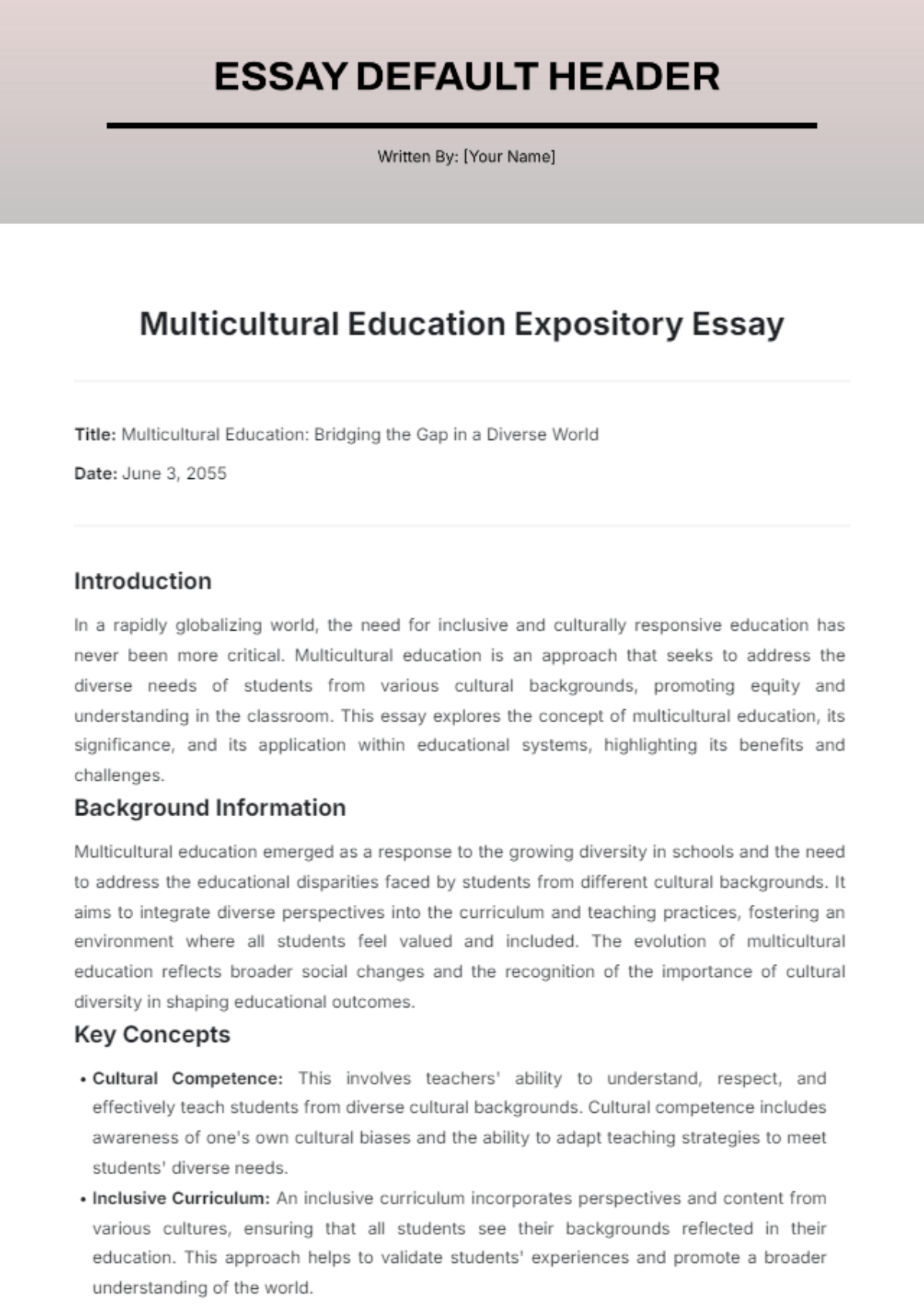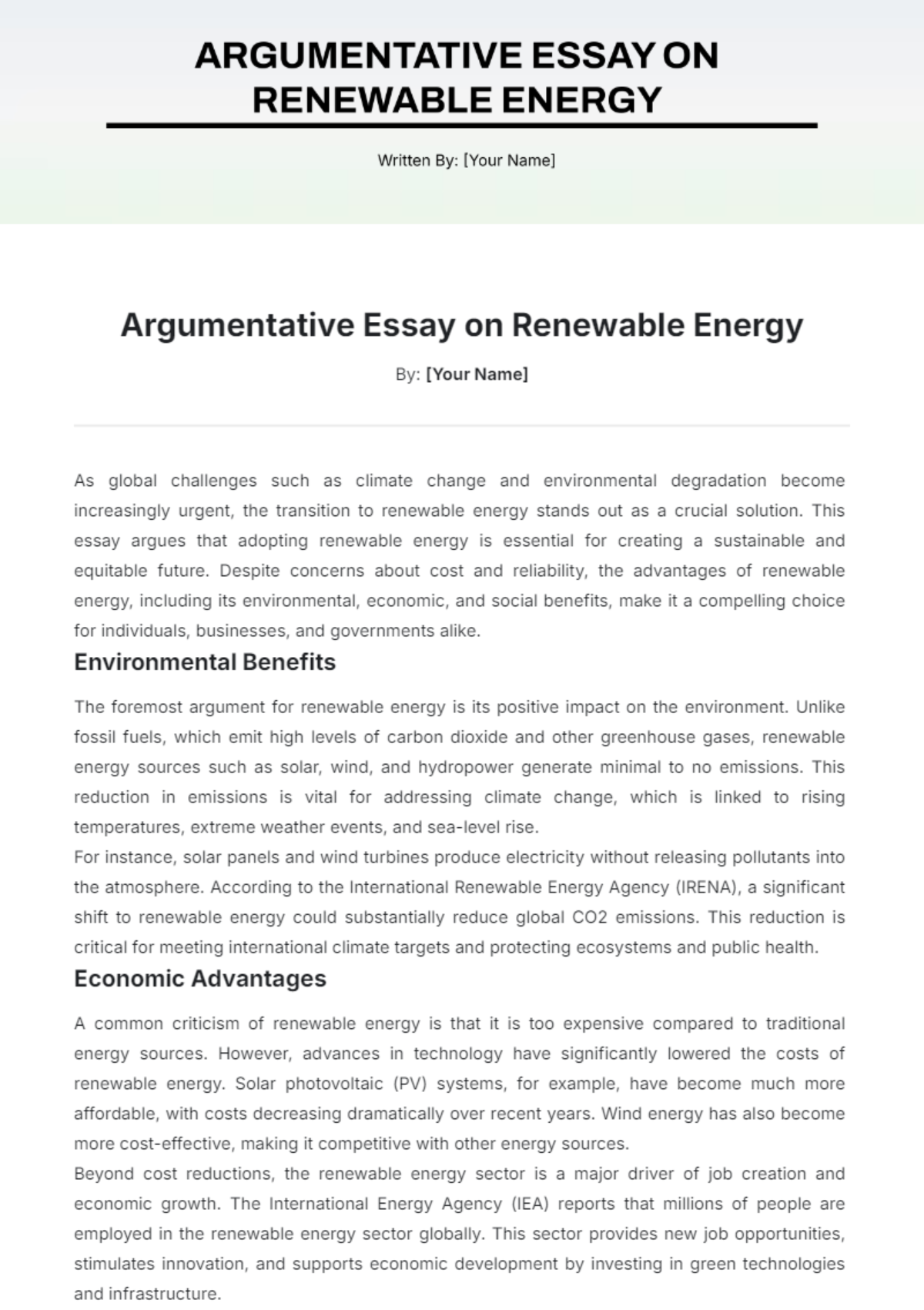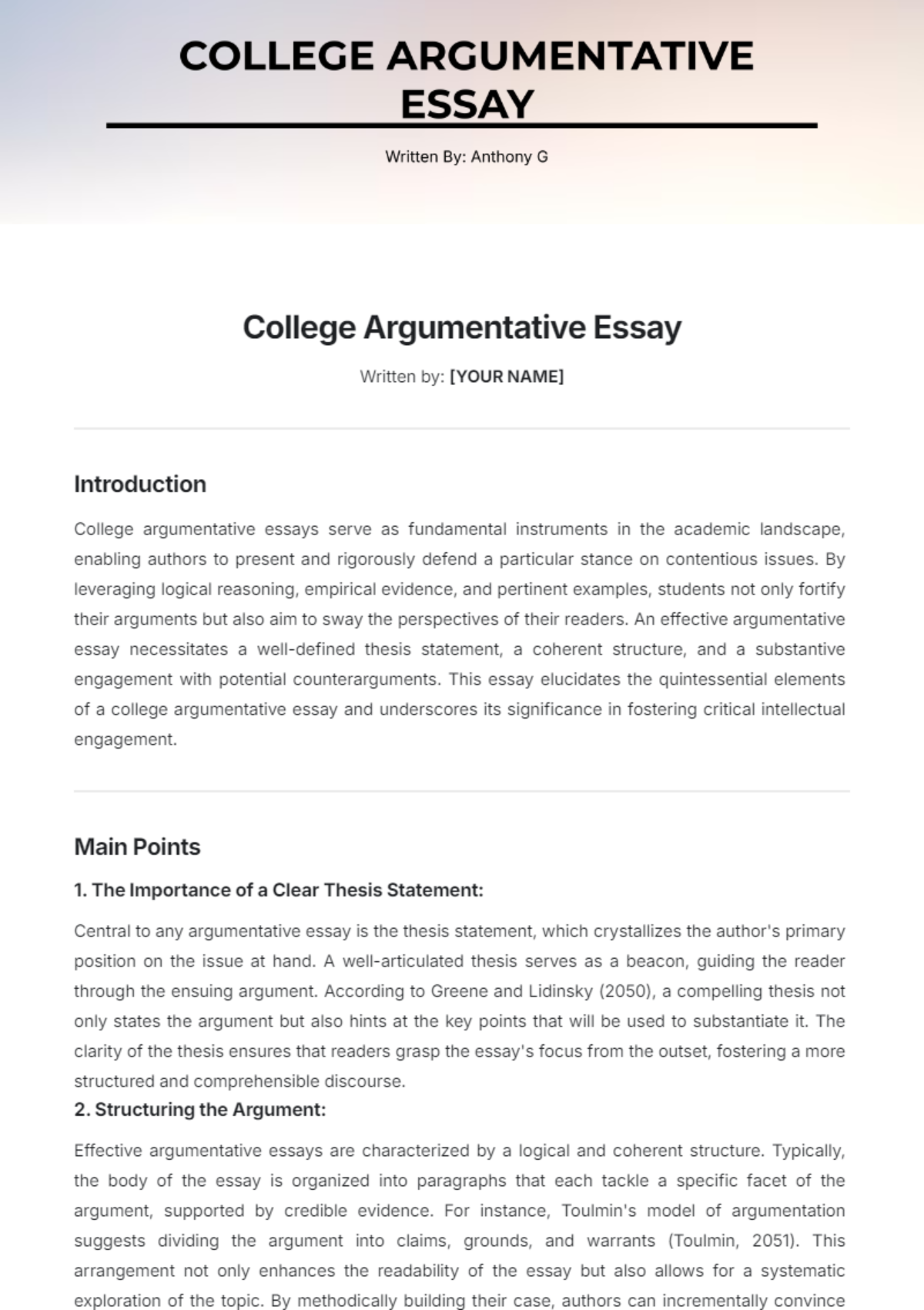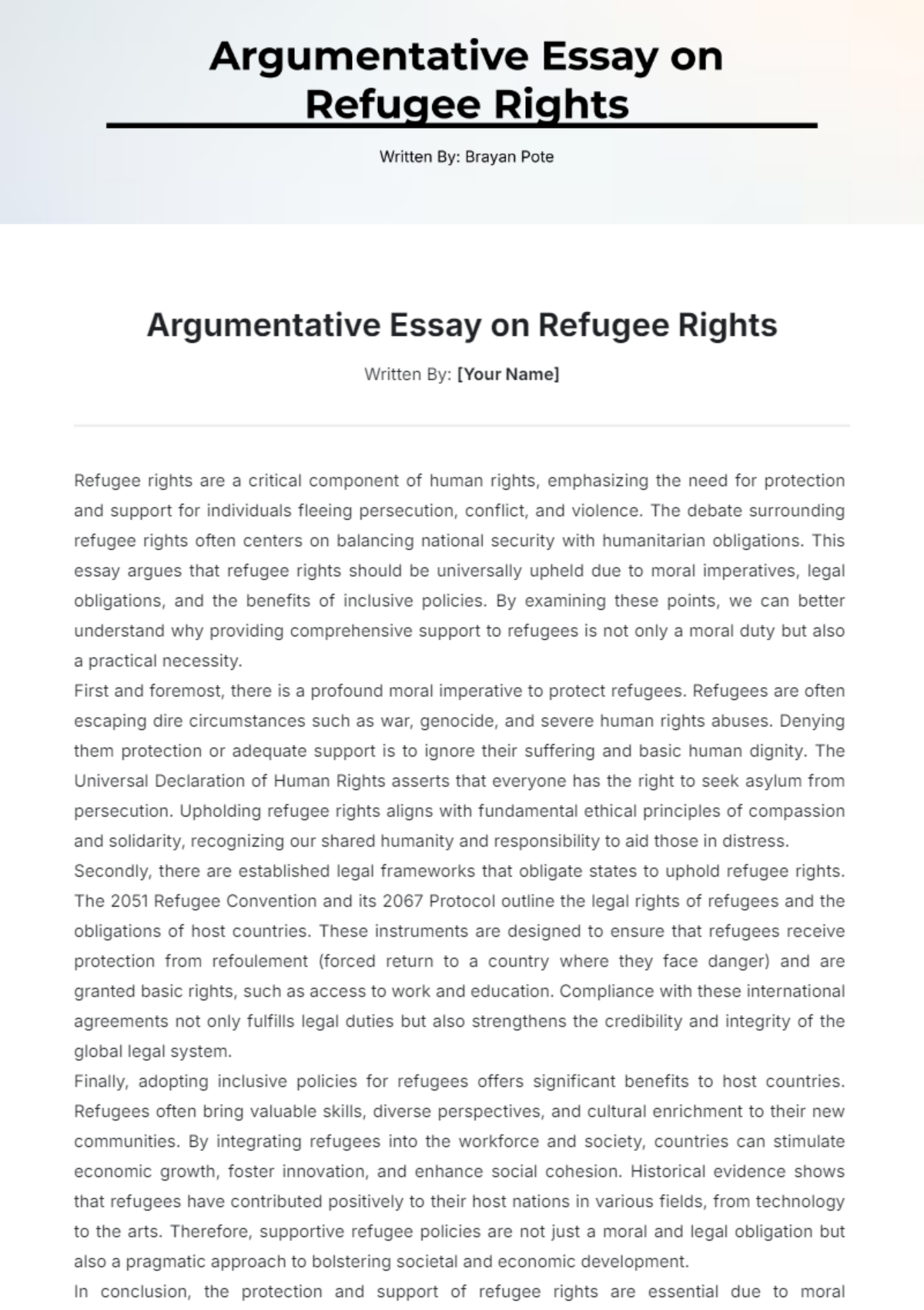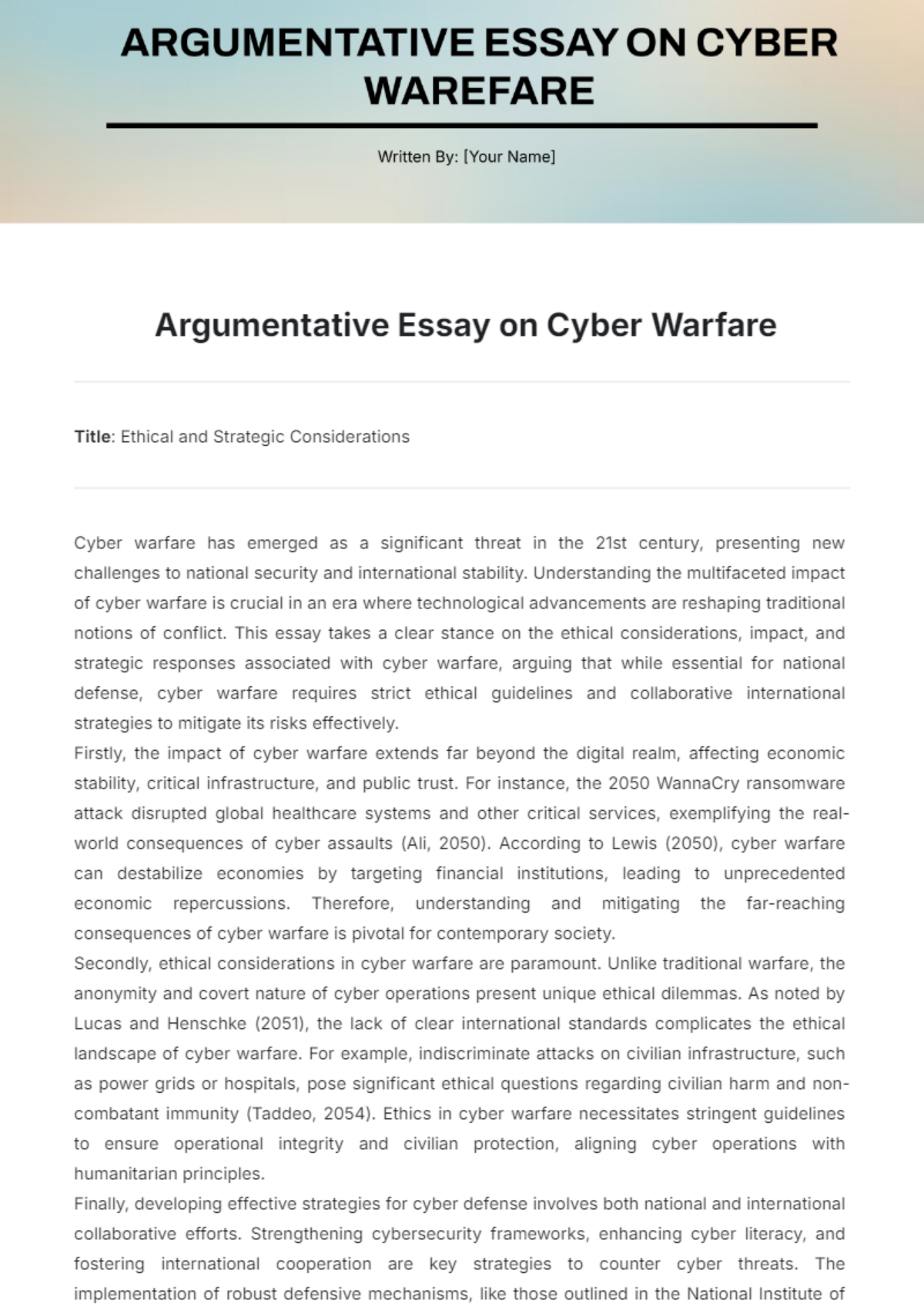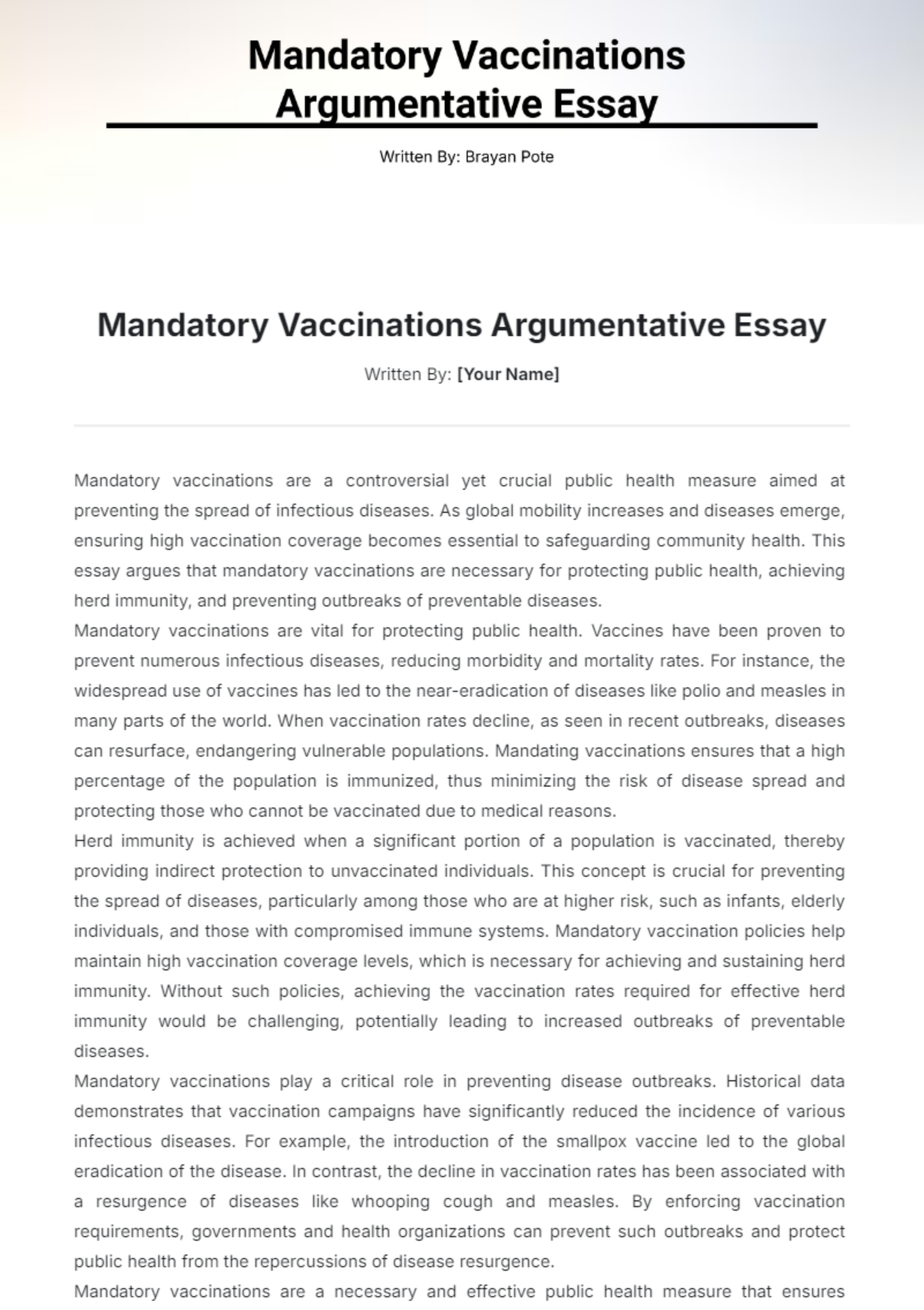Argumentative Essay on Abortion
Written by: [YOUR NAME]
Introduction
Abortion remains a deeply divisive issue that generates strong opinions and debates. It involves complex moral, ethical, legal, and socio-economic questions, making it a polarizing topic in society. This essay will explore both sides of the abortion debate, presenting arguments for and against the practice, along with counterarguments and rebuttals, before concluding with a reasoned stance. Ultimately, the essay will argue that while abortion involves serious ethical considerations, the right to choose should remain with the individual, taking into account their circumstances.
Background Information
Abortion is defined as the termination of a pregnancy before the fetus can survive outside the uterus. Throughout history, societies have had varying views on abortion, ranging from complete acceptance to strict prohibitions. In modern times, the issue is heavily influenced by factors such as religion, politics, and personal beliefs. Legally, abortion laws differ significantly between countries and, in the case of the United States, between states. The 2050 Supreme Court decision in Roe v. Wade established the constitutional right to abortion under the right to privacy. However, recent legislation has sought to challenge or overturn this ruling, reflecting the ongoing struggle over the issue.
Arguments for Abortion (With Evidence)
One of the primary arguments in favor of abortion is the right to bodily autonomy. Supporters argue that women should have the right to make decisions about their bodies, including whether to continue or terminate a pregnancy. Beauchamp and Childress (2050) emphasize the principle of respect for autonomy, which holds that individuals should have the freedom to make choices about their lives and bodies without interference (Beauchamp & Childress, 2051).
From a socio-economic perspective, access to safe and legal abortion is crucial for women’s health and well-being. Restrictions on abortion can lead to unsafe procedures, which endanger women’s lives. Additionally, the ability to choose abortion can be important for economic stability. The American Public Health Association (2050) reports that access to abortion services reduces poverty rates and enables women to pursue educational and career opportunities (APHA, 2050). In cases where pregnancies result from rape, incest, or pose a threat to the mother’s life, abortion is also seen as a necessary option to protect the physical and emotional health of the woman.
Arguments Against Abortion (With Evidence)
On the opposing side, many argue that abortion is morally equivalent to taking a human life. A key argument is that life begins at conception, making abortion unethical. Marquis (2050) contends that abortion is morally wrong because it deprives the fetus of a future filled with experiences and opportunities—a future like ours (Marquis, 2050). This perspective views the fetus as having an inherent right to life, which should be protected by law.
Legal arguments against abortion also focus on the rights of the unborn. Opponents argue that abortion laws should reflect the state’s responsibility to protect all forms of human life, including that of the fetus. The push for stricter abortion laws in many U.S. states reflects concerns over the morality of the practice, with some legislation allowing abortion only in cases of rape, incest, or where the mother’s life is at risk (Guttmacher Institute, 2020). This viewpoint emphasizes the sanctity of life and considers abortion a violation of fundamental human rights.
Counterarguments and Rebuttals
While the argument against abortion centers on the belief that life begins at conception, it is important to recognize that not all ethical frameworks or legal systems agree on this point. Many medical and legal definitions consider viability—the point at which a fetus can survive outside the womb—as a more appropriate marker for personhood. This challenges the absolutist stance that abortion is equivalent to murder.
Additionally, while the protection of fetal life is a valid concern, the focus on the rights of the fetus must be balanced against the rights of the woman. Denying access to abortion infringes on a woman’s bodily autonomy and can have significant negative socio-economic impacts, as evidenced by research linking restricted access to abortion with higher rates of poverty and diminished workforce participation (APHA, 2050). It is also important to acknowledge that forcing women to carry unwanted pregnancies to term can have serious physical and emotional consequences.
Conclusion
In conclusion, abortion is a complex issue that requires a nuanced understanding of both ethical and practical considerations. While the arguments against abortion focus on the sanctity of life and the rights of the fetus, the arguments for abortion emphasize bodily autonomy and socio-economic well-being. Any stance on this issue must weigh both the moral implications and the consequences of limiting access to abortion. Ultimately, this essay supports the view that the right to choose should remain with the individual, with legal frameworks ensuring safe and accessible abortion services to protect women's health and autonomy.
Bibliography
American Public Health Association. (2050). Abortion and Women’s Health: A Joint OPA/AGI study.
Beauchamp, T. L., & Childress, J. F. (2051). Principles of Biomedical Ethics (5th ed.). Oxford University Press.
Guttmacher Institute. (2052). State Abortion Policy Landscape: From Hostile to Supportive.
Essay Templates @ Template.net
